Feed aggregator
Tor Doubles: #2 Greg Bear’s Hardfought and Timothy Zahn’s Cascade Point
 Hardfought cover by Tony Roberts
Hardfought cover by Tony RobertsCascade Point cover by Tim White
This Tor Double has the distinction of containing two stories which were both nominated for the Hugo for Best Novella in 1984. Zahn beat out Bear for the rocket, as well as works by Hilbert Schenk, Joseph H. Delaney, and David R. Palmer. Bear wouldn’t go away empty-handed, however, since his story “Blood Music” won the Hugo for Best Novelette that same year (beating out works by Kim Stanley Robinson, George R.R. Martin, Connie Willis, and Ian Watson). Published in November of 1988, the cover for Hardfought was painted by Tony Roberts. The cover for Cascade Point was painted by Tim White.
Cascade Point was originally published in Analog in December, 1983. It won the Hugo Award for Best Novella. The story placed second in the Locus poll and the Analog Readers Poll.
Pall Durrikan is the captain on a interstellar cargo ship. Although he and his crew mostly moves cargo between planets, they also take on passengers to help cover costs and turn a profit. In order to make the trip between distant stars, they must navigate through “cascade points,” essentially jumps in hyperspace. Because of the psychological issues the occur…seeing a cascade of images of yourself that appear real…anyone who isn’t required to be awake during the jump is given sedatives to keep them asleep. On more upscale spaceships, an autopilot is installed, but the Aura Dancer, Durrikan’s ship, doesn’t have one of those, so Durrikan, or one of his crew, must stay awake during the jumps.
Early in the novella, Zahn explains that there are eight passengers on the Aura Dancer, but he only really introduces two of them, Rik Bradley and Dr. Hammerfield Lanton. Lanton is a psychiatrist who is treating Bradley for mental illness bordering wit dissociative personality issues. Since Lanton and Bradley are the only passengers introduced, it is clear that they will become important later in the story. Zahn’s decision not to introduce the other characters indicates that the human factor will be less important to the story than the technical issues that will be faced.
Despite this, and Zahn’s focus in on the narrator-Captain, he makes it clear that there is more going on the ship that the Captain sees. Alana is building a relationship with Bradley, although it mostly occurs outside the main narrator, the Captain sharing it with the reader through his perceptions of Alana. Similarly, although Lanton describes his treatment of Bradley during the Cascade Points, the reader never experiences that treatment directly. The other passengers, and most of the crew, are even less germane to the story and barely register.
Cascade Point is a puzzle story. Zahn has set up the rules for his universe and then tweaks them to make things go awry. He hints at the puzzle early in the story with references to ships that have gone missing during their jumps between stars. When the crew of the Aura Dancer finds themselves in a strange place, the puzzle begins to offer a solution. For the reader, the issue is that Zahn has created the situation and holds all the cards. He can make changes to the rules under the guise that the characters have an incomplete understanding of the way their universe works. Cascade points are used, but not entirely understood. Ming metal is known to impact the passage through cascade points, but only in an imperfect way.
The story does include several interesting ideas, including Lanton’s attempt to use the cascade points, which some believe to show images of the individual in alternative timelines, to treat Bradley’s neurosis, although Durrikan questions the concept and isn’t particularly happy about the idea of Bradley and Lanton remaining awake throughout the jumps. Unfortunately, told from Durrikan’s point of view, Zahn is limited in how far he can follow up any of those subplots, focusing only on how they impact the Aura Dancer and the fate of the passengers and crew overall. While the mysteries that crop up about the cascade points are interesting, it feels like there is a lot more happening that the reader isn’t privy to.
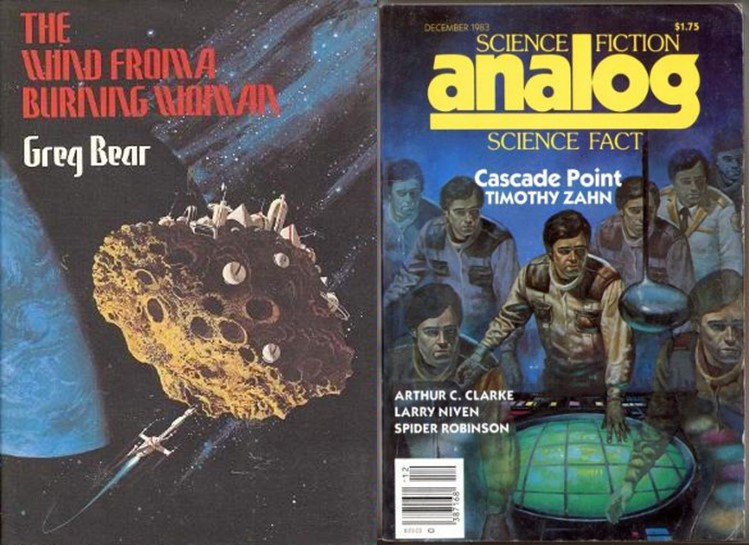 The Wind from a Burning Woman cover by Vincent di Fate
The Wind from a Burning Woman cover by Vincent di FateAnalog cover by Doug Beekman
Hardfought was originally published in Isaac Asimov’s Science Fiction Magazine in February, 1983. It was nominated for the Hugo Award and Nebula Award, winning the latter. It placed fifth in the Locus poll and second in the Science Fiction Chronicle Readers Poll.
John W. Campbell, Jr. was quoted as asking his writers to “Write me a creature that thinks as well as a man or better than a man, but not like a man.” In Hardfought, Greg Bear not only responds to Campbell’s challenge with the creation of the Senexi, an ancient star-faring race, but also with the creation of humans, who bear little resemblance to our own race. Layering these two creations under a lexicon which Bear does not offer to define, but the reader must learn from context, Hardfought provides a hard science fiction story which rewards the careful reader and is likely to leave the casual reader perplexed.
Bear flips back and forth between two protagonists in the story, the Senexi Aryz and a human Prufrax, although it isn’t entirely clear she is human except that Bear has applied that name to her. Her way of thinking and acting certainly feels as alien as anything Bear describes for Aryz. It is clear that the two cultures are at war with each other, but the details of the war, as well as Aryz and Prufrax’s roles in the battle are esoteric.
As with much science fiction, the patient reader is rewarded. It becomes clear that part of the reason for the war is that although the two races are different enough that they should be fighting over the same pieces of real estate, one of the issues is that they come from very different periods in the universe’s evolution. The Senexi are an ancient race, dating to practically moments after the creation of the universe. The Humans are a later race, evolving billions of years after the Senexi. The battle between the two sides is (partly) a generational issue. But even that is too simple an explanation for what is happening between the races.
In addition to the reasons for the war, Bear explores the psychology of the two races. The Senexi have a sort of brood mind with the soldiers like Aryz filling the role of a “branch ind,” clearly based on, but not entirely analogous to the society of bees on earth. The branch inds view themselves as completely expendable, but at the same time they take pride in their roles and seek to serve the brood as successfully as possible.
The humans, as seen by Prufrax, are not the individuals that we usually associate with humans and she seems to be almost a construct who is regenerated to fight as needed, her memories flashing back throughout the story. It is only slowly that her true situation comes to light and causes the reader to reëvaluate the entire story.
Bear is known as a writer of hard science fiction, and Hardfought certainly falls into that category, but it is also reminiscent of the sort of mind-bending concepts that can be found in the works of Samuel R. Delany or Gene Wolfe. Like those authors, and more than other works by Bear, Hardfought is a story which takes on deeper meaning the more time the reader gives to it, both in the reading and in the thinking about it.
While Bear (and other hard science fiction authors) often invents new science to allow himself to explore the worlds he has created, in Hardfought, Bear creates new civilizations and vocabulary, and trusts the reader to be able to figure everything out from context rather than attempting to explain what he is doing and what is happening.
The two hard science fiction stories in this volume of the Tor Doubles series both come from the same tradition, but they arrive in very different places. Zahn’s story is more traditional, and offers the reader its own twists and turns, while Bear’s tale is a much more complex and challenging exploration of the ethics of warfare and civilization.
 Steven H Silver is a twenty-time Hugo Award nominee and was the publisher of the Hugo-nominated fanzine Argentus as well as the editor and publisher of ISFiC Press for eight years. He has also edited books for DAW, NESFA Press, and ZNB. His most recent anthology is Alternate Peace and his novel After Hastings was published in 2020. Steven has chaired the first Midwest Construction, Windycon three times, and the SFWA Nebula Conference numerous times. He was programming chair for Chicon 2000 and Vice Chair of Chicon 7.
Steven H Silver is a twenty-time Hugo Award nominee and was the publisher of the Hugo-nominated fanzine Argentus as well as the editor and publisher of ISFiC Press for eight years. He has also edited books for DAW, NESFA Press, and ZNB. His most recent anthology is Alternate Peace and his novel After Hastings was published in 2020. Steven has chaired the first Midwest Construction, Windycon three times, and the SFWA Nebula Conference numerous times. He was programming chair for Chicon 2000 and Vice Chair of Chicon 7.
Comment on Easter Update by Bill
Thanks for the update and glad to hear that Book#4 is well under way, even if progress isn’t as fast as you’d like.
Looking forward to Essentia Capacity and if age or training can increase it for Stephen, even if only by a little…
Will the November release date for Book#3 be better for sales as you might be inside the Christmas timeframe as people struggle of gift ideas, or are sales fairly even during the year?
Book Review: Senseless by Ronald Malfi
I received a review copy from the publisher. This does not affect the contents of my review and all opinions are my own.
Mogsy’s Rating: 3.5 of 5 stars
Genre: Horror, Thriller
Series: Stand Alone
Publisher: Titan Books (April 15, 2025)
Length: 432 pages
Author Information: Website
Ronald Malfi is currently one of my favorite authors and I’ve greatly enjoyed all of his recent releases. However, Senseless was a bit of a mixed bag. While it delivers many of the things I’ve come to expect from Malfi, like an eerie atmosphere with just the hint of the supernatural, this particular story just didn’t resonate with me quite as strongly.
The novel opens with the grisly discovery of a woman’s mutilated body in the Mojave Desert, not far from the outskirts of Los Angeles. Detective Bill Renney is called to the scene to examine the remains and is unsettled to find eerie similarities to the case of another murdered woman that he’d worked on a year before. In fact, there’s enough to suspect that both women might have been killed by the same person—except that unbeknownst to anyone, Renney actually has secret information about these cases that might complicate his investigation.
Meanwhile, in a glitzier part of the city, author Maureen Park is celebrating her whirlwind engagement to powerful Hollywood producer Greg Dawson when the party is crashed by his son Landon. The twenty-something young man has lived a troubled life of aimlessness and addiction, but Greg’s latest attempt to keep his son out of the spotlight by sending him to school in Europe appears to have failed yet again. Already uncomfortable with Landon’s unpredictable behavior, Maureen is even more shocked and fearful after finding some disturbing items among his belongings.
And finally, we have a third POV character, Toby. The most mysterious of all, Toby drifts from place to place, fancying himself a “human fly” escaping from the “spider” and her web at home. Then one night at a club, he encounters an enigmatic woman who claims to be a vampire, sending him spiraling further into delusion as a powerful obsession for her takes over.
Senseless is the fifth book I’ve read by the author. By now I’ve come to associate his name with atmospheric horror and emotionally driven narratives, usually led by complex and flawed characters. This book largely delivers on all these counts. On the surface, it reads like a murder mystery and almost like a police procedural, especially when we are following Renney. He was my favorite character in the book, if nothing else for his part in the plot, which felt the most grounded and compelling, giving off that gritty, noir-like quality I appreciated. In a way, his chapters were also a deep character study of the man over the course of a year, starting from the unsolved murder of the first woman, when Renney was still mourning the recent death of his wife. With the discovery of the second murder victim a year later, his guilt and grief come roaring back, joining his growing suspicions to unravel what little peace he’s managed to hold onto.
In contrast, I was not so keen on Maureen or Toby’s chapters. To be sure, this book wasn’t without its hiccups, but admittedly it could have had something to do with my own struggles with abstract themes. At times, Toby’s POV even veered into surreal territory, a truly unreliable narrator if I’ve ever seen one. Worse, his rambling, fever dream-like chapters were often to the detriment of the story’s momentum, and every time I got one of his chapters, I had the urge to skim. Maureen’s storyline fared a little better, but I found that, while initially promising, her chapters tended to get lost in the shuffle. Granted, that’s also probably because the connections between the three characters were tenuous for most of the novel and demand a fair bit of patience from the reader. While answers do eventually come in time, I wonder if perhaps Malfi may have overreached a bit in making this one so structurally ambitious.
But my one real gripe lies with the ending. The final moments felt too abrupt, too unsatisfying. Sure, I can appreciate a story that leaves room for interpretation, but the resolution to Senseless, if you can even call it that, felt too ambiguous in leaving too many questions unanswered. Is it a dealbreaker? No. But I just wish we’d gotten a little more clarity.
At the end of the day, there’s a lot to admire here, and the greatest strength of Senseless lies in how Ronald Malfi managed to tie the threads of three disparate narratives together. However, this was not one of my favorites of his books. There were moments of brilliance, where his talent for crafting striking imagery and rendering realistically imperfect human characters really shines, but when we zoom out to look at the bigger picture, the hits don’t always land as cleanly as they aim for. As a fan of Malfi’s work, I’m still glad I read this, but for newcomers, there are probably more solid choices for an introduction to his horror and thriller fiction, like Come With Me or Black Mouth.
![]()
![]()
Fantastic, August 1961: A Retro-Review
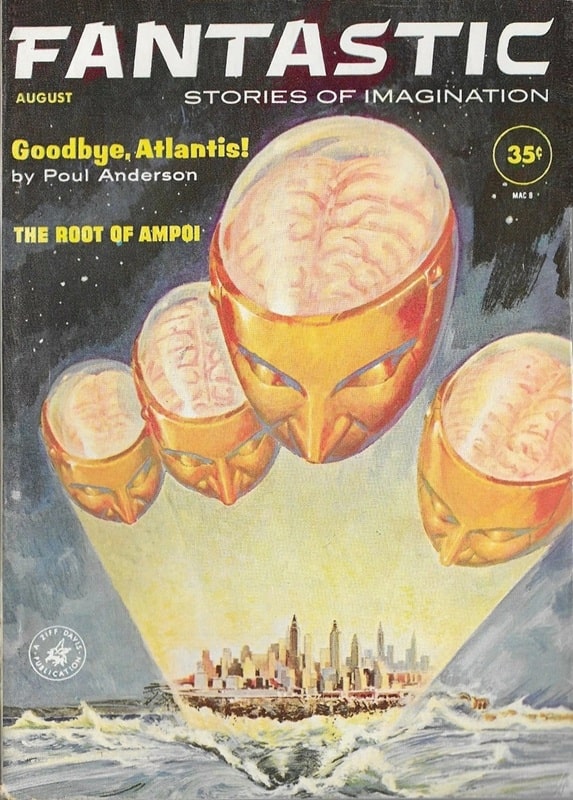
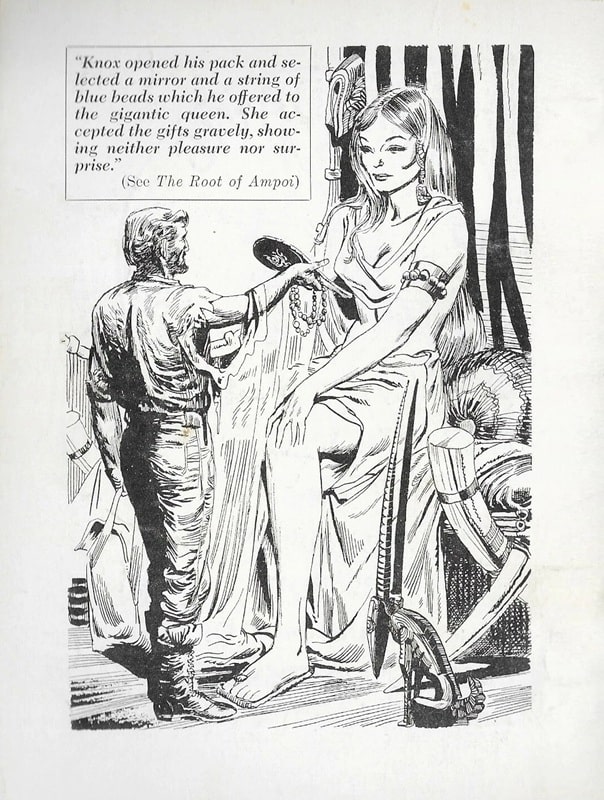
Fantastic, August 1961. Cover by Leo Summers
It’s been a long time since I did a Retro-Review from Cele Goldsmith’s time at Amazing/Fantastic. So I’m happy to be back at it! This issue is from about two years into Goldsmith’s tenure.
There are two features — Norman Lobsenz’s editorial, and the letter column, According to You. (Well, and a brief Coming Soon piece.) The editorial talks about using computers to analyze the various items certain Thais believe have magical powers, ending with a slight joke about hoping to find a love philtre “for Cele.” It introduces the concept by talking about the famous Arthur C. Clarke story in which a computer helps Tibetan monks list all the names of god — but misidentifies the story weirdly by adding another billion names: “The Ten Billion Names of God.”
[Click the images for fantastic versions.]
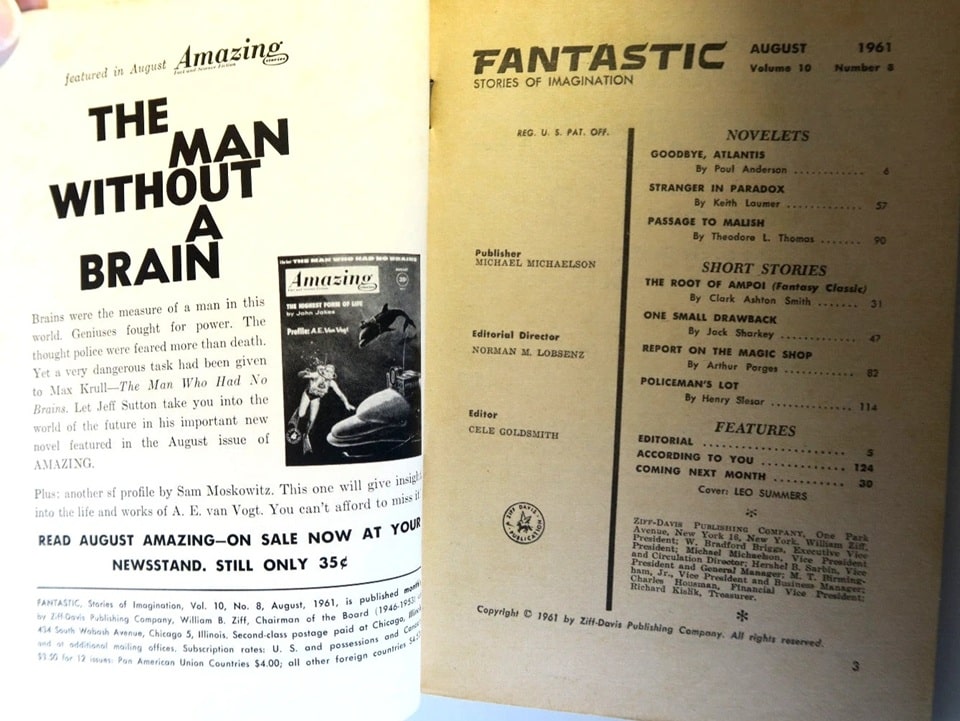 Table of Contents for Fantastic, August 1961
Table of Contents for Fantastic, August 1961
According to You has six letters. I recognized some well-known fans: Bill Bowers and Redd Boggs were both prolific fanzine editors and multiple Hugo nominees. Lawrence Crilly, John Pocsik, and David Charles Paskow are not as was well known but do get mentions in Fancyclopedia 3, and indeed the Paskow Collection at Temple University is named for David Paskow. F. C. MacKnight is the other contributor.
The letters concern mostly Fritz Leiber and the newly instituted use of one reprint per issue — both get praise. David Bunch is of course mentioned — negatively by Bowers and positively by Paskow (the latter mention getting this relieved comment from Goldsmith: “We figured that if we kept publishing [Bunch], somebody sooner or later would agree with us that he has something in his stories.”)
The cover is by Leo Summers, the interiors are by Summers, Virgil Finlay, West, Dan Adkins, and Larry Ivie, with a Summers back cover based on the Smith story, and one cartoon by Frosty.
The stories, then.
Novelets“Goodbye, Atlantis!,” by Poul Anderson (9,000 words)
“Stranger in Paradox,” by Keith Laumer (9,200 words)
“Passage to Malish,” by Theodore L. Thomas (9,000 words)
“The Root of Ampoi,” by Clark Ashton Smith (5,900 words)
“One Small Drawback,” by Jack Sharkey (3,800 words)
“Report on the Magic Shop,” by Arthur Porges (3,000 words)
“Policeman’s Lot,” by Henry Slesar (3,600 words)
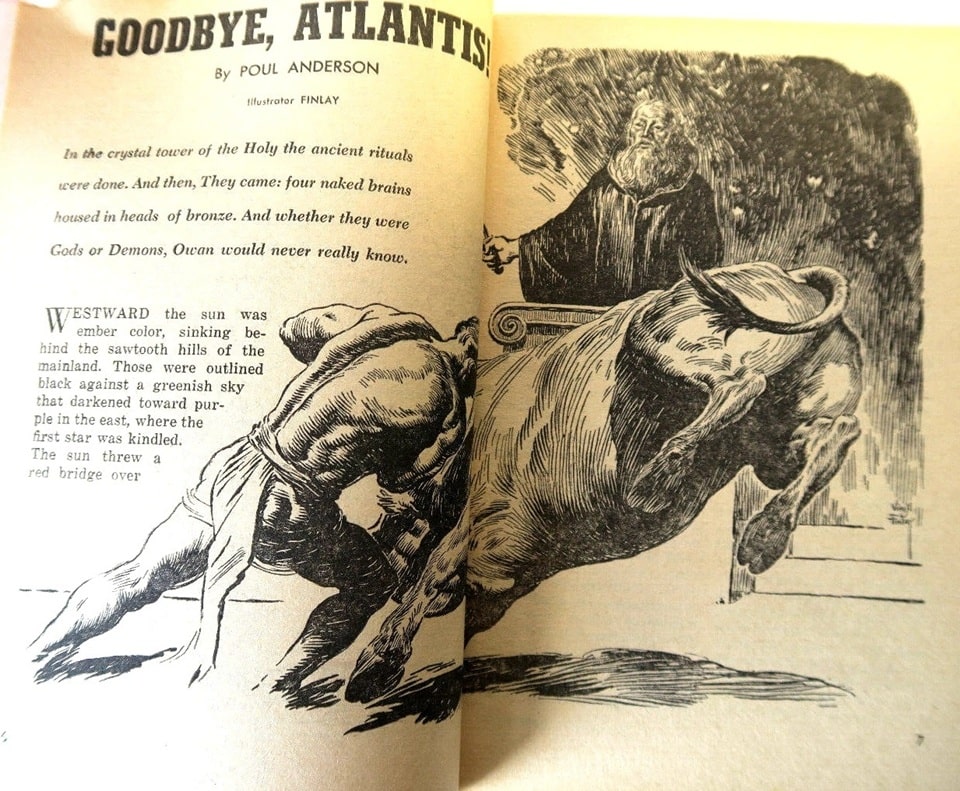 “Goodbye, Atlantis!” by Poul Anderson, illustrated by Virgil Finlay
“Goodbye, Atlantis!” by Poul Anderson, illustrated by Virgil Finlay
“Goodbye, Atlantis!” is a very obscure Anderson story — it’s only ever been reprinted once, in one of Sol Cohen’s super cheap and ugly all-reprint magazines, which mostly or entirely mined the Amazing/Fantastic backlist for material (and reprinted it (legally) without pay until SFWA objected, after which apparently Cohen made nominal payments.)
The lack of reprints is a bit odd, because “Goodbye, Atlantis!” isn’t terrible. It’s no lost classic, but it’s fine. The viewpoint character is Owan, a guard Captain in the retinue of the nobleman Donwirel and his wife Rianna, who is the niece of the former king of Atlantis, and thus cousin to the current king. Owan is in love with the beautiful Rianna, but at this time the concern is that there is a rebellion against the new king.
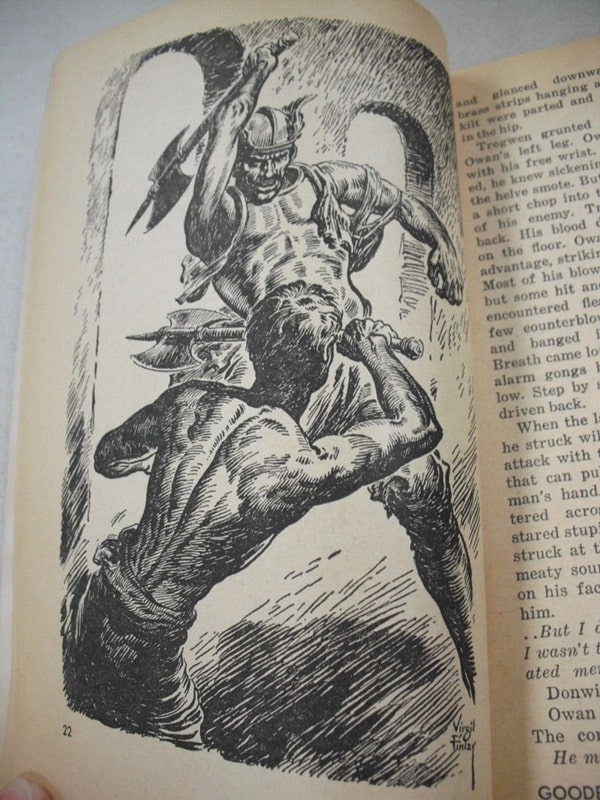 ‘Goodbye, Atlantis!” Illustration by Finlay
‘Goodbye, Atlantis!” Illustration by Finlay
The plot turns on the efforts of the Archpriest Govandon to summon the long absent gods of Atlantis to vanquish the rebels, who are clearly winning the war and have the capitol under siege. Owan has concerns — he doesn’t trust the gods, or perhaps simply doesn’t trust that Govandon’s spells will work. He goes to attend Donwirel, who is working with Govandon — and is poisoned.
It’s clear that Donwirel is a traitor, and only Rianna’s timely intervention saves Owan, after which he struggles to prevent Donwirel from stealing the spells Govandon has learned. There’s some solid action, and Owan (and Rianna) are successful — but their success proves profoundly ambiguous. (Behind it all is a sly suggestion that the rebels were right all along.)
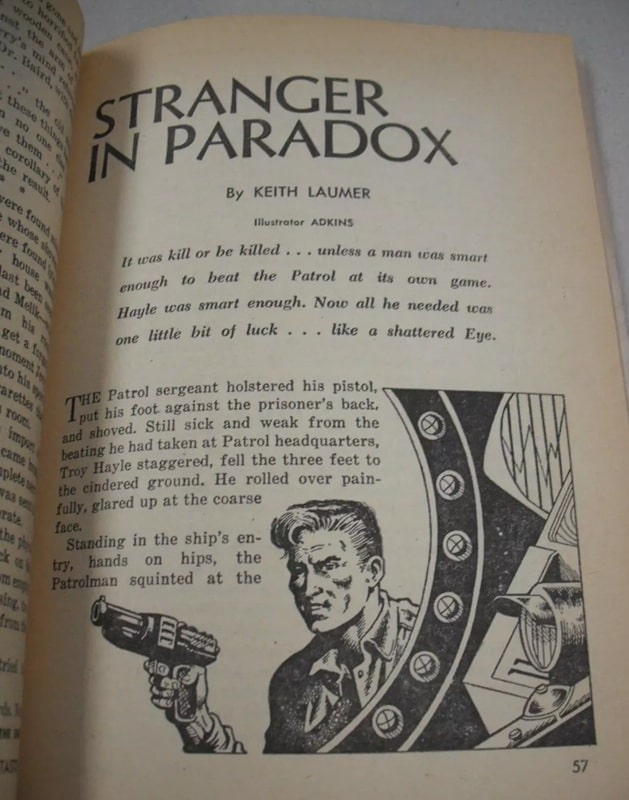 “Stranger in Paradox” by Keith Laumer. Illustrated by Dan Adkins
“Stranger in Paradox” by Keith Laumer. Illustrated by Dan Adkins
“Stranger in Paradox” was, I think, Keith Laumer’s fourth published story. The first two, “Greylorn” and “Diplomat-at-Arms” were published by Goldsmith as well — Laumer was one of her major discoveries, along with Le Guin, Disch, Zelazny and to some extent Ballard (for the American market.) The Retief stories (after “Diplomat-at-Arms”) ended up finding a home in Frederik Pohl’s If, but Goldsmith otherwise published a great deal of Laumer’s early work.
Alas, “Stranger in Paradox” is pretty awful. Hayle is dumped on the title planet by the Patrol, who seem to be the agents of the despotic rulers of this future. (Details are pretty slight.) They leave him nothing but a short sword and a reusable match. The only rule on Paradox is that prisoners cannot cooperate — they must either avoid each other or fight.
Hayle’s plan is to somehow convince a couple of other people to cooperate, and after figuring out how the Patrol keeps track of the prisoners, he manages that … and then, with a profoundly implausible plot, lots of luck, a woman prisoner falling into their laps, and utterly ridiculous concept of both how the Patrol would work and how they control civilization, they succeed. It’s just dumb dumb dumb the whole way, redeemed only slightly by the fight scenes that are, as usual, quite good — Laumer had the knack of writing fights.
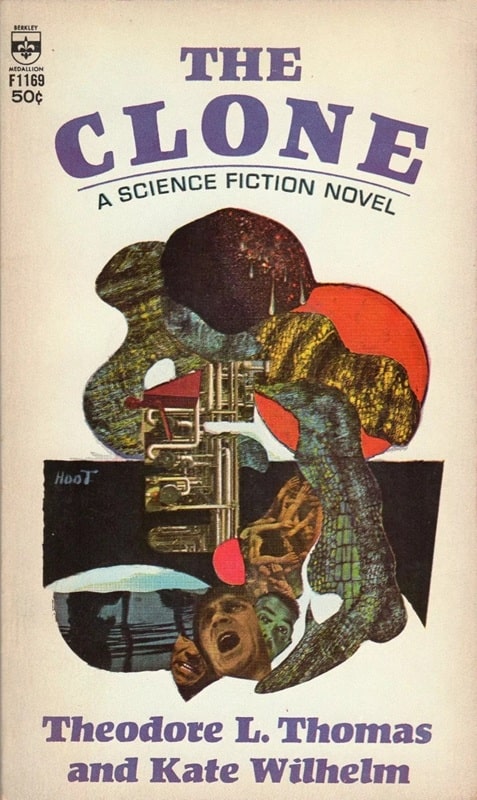
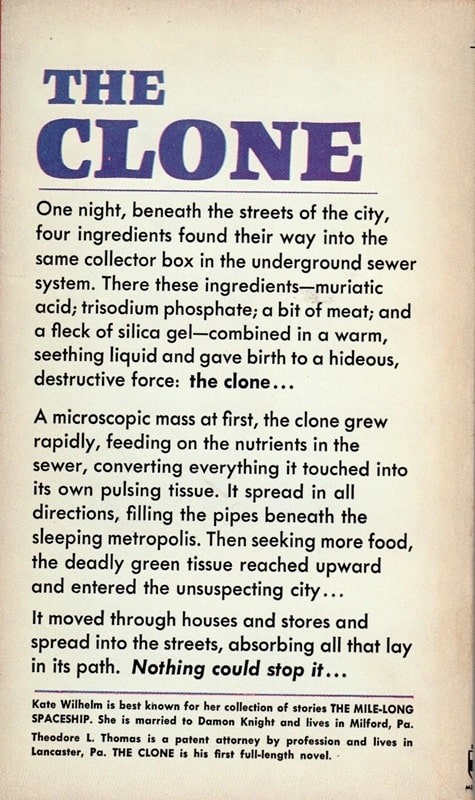
The Clone by Theodore L. Thomas and Kate Wilhelm
(Berkley Medallion, December 1965). Cover by Hoot von Zitzewitz
Theodore L. Thomas (1920-2005) was a chemical engineer and patent attorney who wrote about 50 short stories between 1952 and 1981. He wrote two novels in collaboration with Kate Wilhelm (The Clone and The Year of the Cloud.) He is probably best known still for a series of stories he wrote as “Leonard Lockhard” about science fictional complications with patents — the first two of these in collaboration with fellow patent attorney Charles Harness; and for his story “The Weather Man,” about human control of the weather.
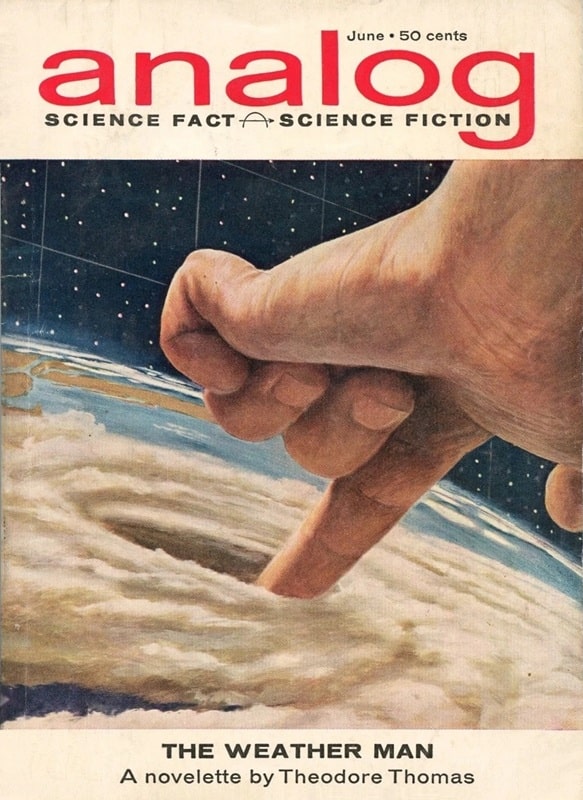 Analog Science Fact/Science Fiction June 1962, containing “The Weather Man” by Theodore L. Thomas. Cover by John Schoenherr
Analog Science Fact/Science Fiction June 1962, containing “The Weather Man” by Theodore L. Thomas. Cover by John Schoenherr
“Passage to Malish” is about a salesman who finds himself diverted from his trip to the planet Malish because it’s been determined that he’s the perfect person to confront the visiting aliens from the Large Magellanic Cloud. The solution involves turning him into a superhuman, committing genocide (or galactocide, I suppose), and then hoping he’ll consent to being turned back to a normal human before he uses his powers to subvert the Milky Way. I never believed any of this story for a second.
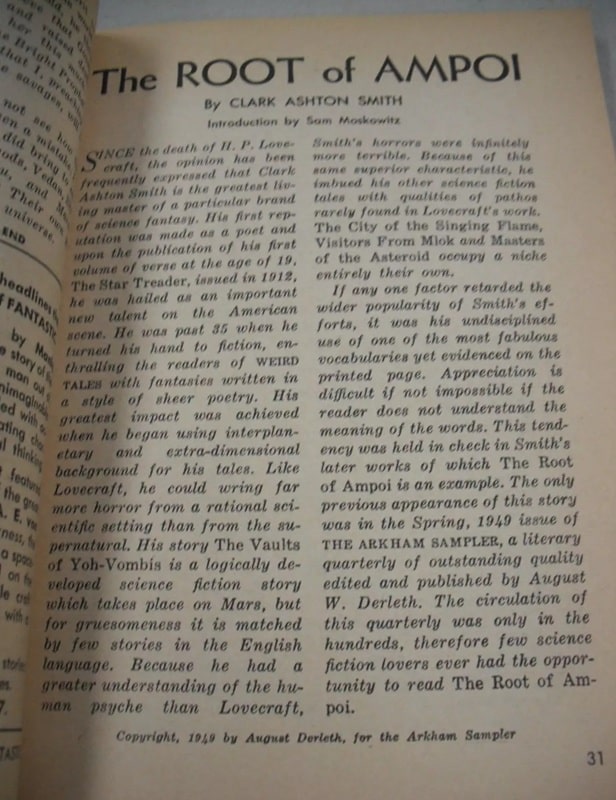
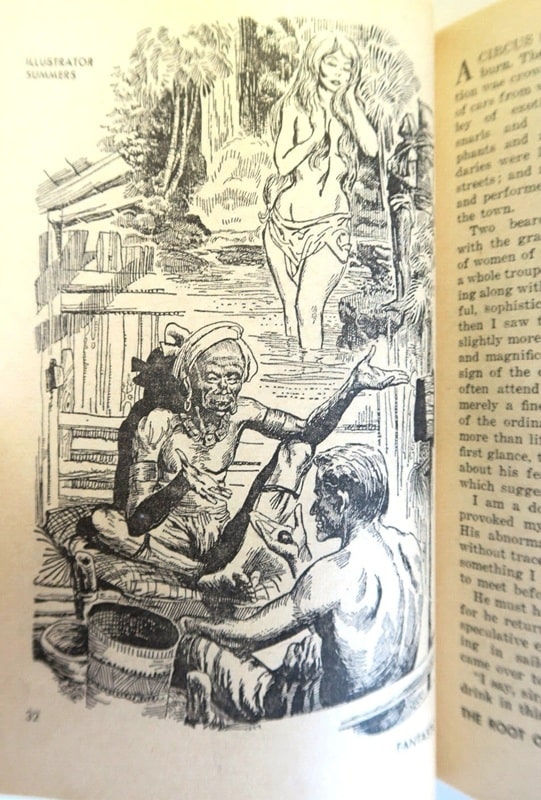
“The Root of Ampoi” by Clark Ashton Smith. Illustration by Summers
“The Root of Ampoi” is Sam Moskowitz’s choice for this month’s fantasy reprint. Clark Ashton Smith (1893-1961) was a poet and a writer of weird fiction whose reputation has gone up and down over time, and seems on the upside now. He was a regular contributor to Weird Tales, and part of Lovecraft’s circle. He was known for his ornate prose and extravagant imagination, so, Moskowitz, with his impeccable as ever taste, declaring in more or less Salieri mode that Smith used “too many words” (that’s my paraphrase of Moskowitz’ words) chose a completely uncharacteristic story to reprint. (That said, it has been reprinted fairly often, one time as “The Ampoi Giant,” so other people may disagree with me.)
“The Root of Ampoi” is a tale told by a giant working for a circus. He was a sailor, and he heard of a place on New Guinea where the men were normal sized and the women were nine feet tall. And there were rubies to be had for a song. Seeking to make his fortune, he finds this place, and learns about the secret that makes the women so tall — after the queen of those women chose him for a consort. But, unhappy with being dominated by a much larger wife, he ferrets out the secret… the punishment for which is banishment. No rubies either. But — easy to find circus work. This is really minor stuff — a competently executed tall tale, really. But it seems nothing like a real introduction to CAS.
Jack Sharkey (1931-1992) was a Cele Goldsmith regular, though to my taste he was a pretty weak writer. “One Small Drawback,” however, is not too bad at its length. Jerry, a college kid, is intrigued by his professor’s research into telekinesis, but nothing he tries has any effect. His professor is convinced that what he needs is true belief. Then something small happens that convinces Jerry he can use telekinesis… but it doesn’t work consistently. The key element he eventually discovers is pretty clever, and effectively dark.
Arthur Porges (1915-2006) wrote over 200 stories, split roughly 50/50 between mystery and SF. His stories were mostly fairly short, and were consistently clever, sometimes amusing, sometimes quite mordant. As a writer of exclusively short fiction, he’s not really widely remembered, but he was one of the most dependably enjoyable writers in the field, and his contributions appeared right up until his death, mostly in F&SF but also in Goldsmith’s magazines. “Report on the Magic Shop” is good solid fun, nothing earth-shattering, written as if the author is telling the editors about the various products sold at a magic shop he happened to stumble into.
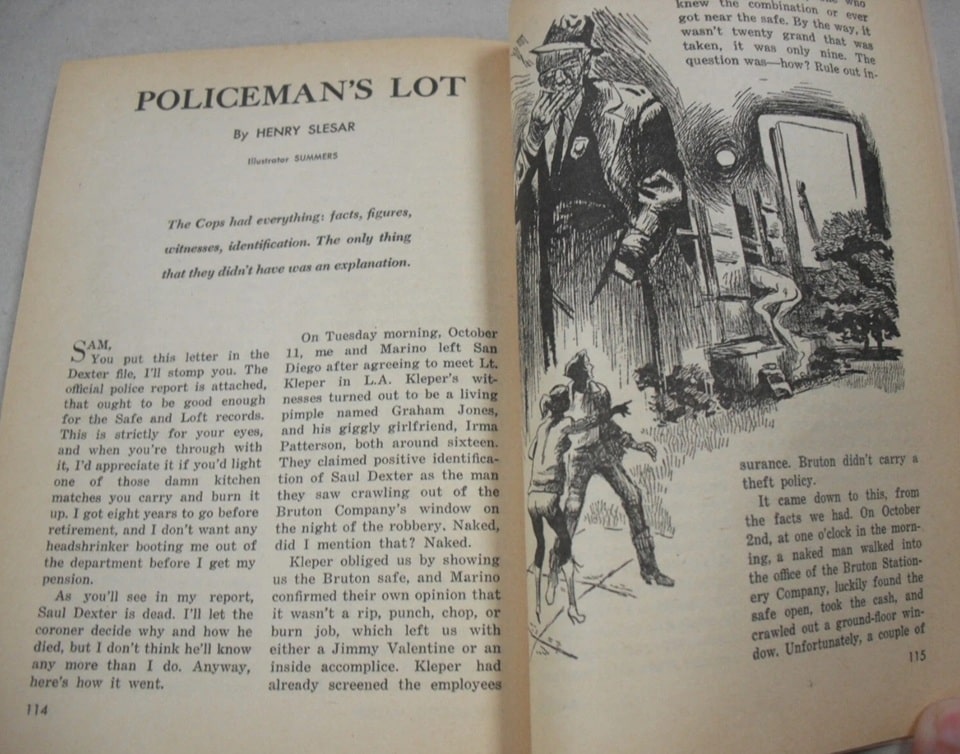 “Policeman’s Lot” by Henry Slesar. Illustration by Summers
“Policeman’s Lot” by Henry Slesar. Illustration by Summers
Henry Slesar (1927-2002) was another writer of both SF and crime fiction, with most of his SF fairly short. He was better known as a mystery writer, and so perhaps it isn’t a surprise that “Policeman’s Lot” is basically a mystery, though with a fantastical solution.
A veteran patrolman submits a report on a strange case he recently investigated, involving a couple of basically “locked room” thefts, in which in one case a man was found escaping from a window naked. Not long after, the man is found crushed to death in his house. The strange factor is that he seems to have changed height between separate arrests. The solution is kind of obvious, and acceptable except as an explanation of his death.
Rich Horton’s last article for us was We Are Missing Important Science Fiction Books. His website is Strange at Ecbatan. Rich has written over 200 articles for Black Gate, see them all here.
Women in SF&F Month: Sara Hashem
Today’s Women in SF&F Month guest is Sara Hashem! Her Egyptian-inspired epic fantasy debut novel, The Jasad Heir, was a Sunday Times bestseller and a Goodreads Choice Award nominee in the Romantasy category. Her next novel and the conclusion to her Scorched Throne duology, The Jasad Crown, will be released on July 15. I’m very excited for its release since her first novel was one of my favorite books of 2023 with its excellent banter and character dynamics, including an […]
The post Women in SF&F Month: Sara Hashem first appeared on Fantasy Cafe.Spotlight on “Measure of Devotion” by Nell Joslin
Measure of Devotion, Nell Joslin’s fantastic novel, is the sweeping grandeur of the mountains, the…
The post Spotlight on “Measure of Devotion” by Nell Joslin appeared first on LitStack.
On McPig's Wishlist - Hallowed Games
 Hallowed Gamesby C.N. Crawford
Hallowed Gamesby C.N. CrawfordIf he’s death, I crave oblivion.
I'm cursed to kill with a brush of my fingertips. My worst fear is attracting the attention of the kingdom’s magic hunters. Maelor is their mysterious, gorgeous leader--and my world falls apart when he learns my secret.
When he arrests me, my only hope is to survive a deadly competition, to win the mercy of our god. Strangely, Maelor is immune to my touch. Turns out, that’s because he’s secretly a vampire—lethally sexy, and dangerous as hell.
He's as drawn to me as I am to him. Can this beautiful monster help me survive, or will our dark attraction lead me to ruin?
A Hard Post to Write - By NotWill
2025 has been off to a rough start here at Hidden Gnome Publishing. As some of you may know from the last blog post, our cousin Ellie was diagnosed with stage four Ovarian cancer in January. She fought for four months but ultimately didn’t make it. She passed away 19 days before her 25th birthday.
Ellie was one of the cousins we grew up close to, relationally speaking. We took many cross-country RV trips as a family. I saw snow for the first time on one of those trips to Yellowstone and we brought Ellie on her first visit to Disney World. After she graduated from college, we even discussed with her the possibility of interning for Hidden Gnome to get some real world experience.
Her older brother Stuart is one of my best friends and a Cradle fan himself. I’ve spent a good chunk of the last couple months in Georgia trying to be there for him and his family. In the end, there was nothing we could do, which is probably the part that stings the most.
A little over a week ago, another member of our team, Lily, had her mom pass away unexpectedly. She and her husband Patrick, our art designer, are currently with their family trying to navigate that loss.
Life is hard and it’s difficult not to feel anger when you lose a young cousin to cancer and your mother before you’re ready to say goodbye. The only bright side is the 24 years Ellie got to impact other people’s lives and the effect a good mother can have on raising an awesome daughter.
7 of the 12 members of Hidden Gnome are grieving in different ways right now. It’s times like these where being a family company is difficult, so apologies in advance for delays in some of our deadlines we’ve communicated. We’re all trying to get back in the proverbial saddle as quickly as we can.
The great part about being a family company is that we can be there for each other. Because of this job and the fans who support Will’s career, we have the ability to take time away and support our relatives when they need it the most. Sincerely…gratitude to all of you.
Cancer sucks and I have a whole new level of empathy for anyone who has or is currently walking through this. We’re all rooting for you! And remember, “A dragon is not ashamed of tears.”
-Sam
The Struggle Is Real
Tuna and Oliver had their annual visit to the vet for vaccines and physicals. Here is Tuna being the king of everything at the vet office.
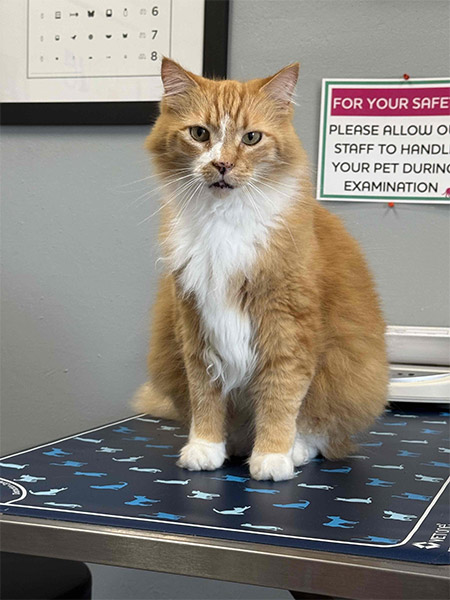


 He has no shame. Or dignity.
He has no shame. Or dignity.
Tuna, predictably, was lovely to the vet, let his blood be taken, sat like a rock for vaccines, and has normal bloodwork.
I would take a pic of Oliver for you but I have no clue where he is. He is hiding. Oliver is allergic to life. He is allergic to cedar, he is allergic to Texas, he is allergic to food additives commonly found in cat food. He has constant nasal discharge, which means he sneezes a lot, he rips his hair out, which I clean daily, and he can only eat Royal Canin Sensitive Stomach food, because everything else he throws up.
 Oliver was here at some point. This is 24 hours of me not cleaning that chair. I will get to it after that post.
Oliver was here at some point. This is 24 hours of me not cleaning that chair. I will get to it after that post.
Oliver will not eat special cat treats, tuna out of the can, or vet cat bribe treats. Only Royal Canin. That’s it. Also, he loves Meow Mix kibble, which he cannot have, because he regurgitates it right back out.
Oliver is also the reason why I have furniture covers on everything. Not only that, I have doubles, so I can swap them when company is coming. I cannot stand pet hair on furniture. It drives me up the wall so I religiously clean it with a special tool.
 In case you are wondering, this works. Skip the small one, just get the bigger one.
In case you are wondering, this works. Skip the small one, just get the bigger one.
Oliver hid in the carrier at the vet, had to be forcibly removed, and they could not draw blood even after putting him into the kitty bag. We had to leave him at the vet so they could sedate him with gabapentin. Finally, blood was drawn and the results have come back. He has IBD, Inflammatory Bowel Disorder, which we already suspected. He also has a UTI. We picked up an antibiotic for him, which we have to squirt into his mouth twice a day.
Oliver fights for his life every time we wrap him in a blanket to give him medicine. Every time that happens, he truly believes that we will murder him. Given a chance, he will claw you bloody and bite, and I just wish there was some way to make it less alarming for him, but there is not. So now, when he sees either of us, he runs and hides.
::exhales:: Oliver is a lot. He is now classified as elderly and he doesn’t react well to change. He is a sweet, clingy kitty, and I was the one who took him out of a cage in PetSmart, so he will have a home with us for the rest of his days.
Also a lizard got inside two days ago. Charlie killed it – we know this because he brought us the still twitching tail – which we confiscated. We looked for it at the time but couldn’t find it.
We found it this morning, safely tucked under a large dog pillow. It had begun to rot and it stank. I’m washing the pillow cover and contemplating if I should give up and throw the whole pillow out.
I’m supposed to be writing today, and I’m not feeling it. But I really want to get this novella done before the end of the month.
::pretends to gird loins::
Don’t write, don’t eat. Onward! To cleaning cat hair, putting pillow cover in the dryer, and then writing like the wind.
The post The Struggle Is Real first appeared on ILONA ANDREWS.
Women in SF&F Month: Karin Lowachee
Todya’s Women in SF&F Month guest is Karin Lowachee! Her short fiction includes “A Borrowing of Bones” (selected for the Locus Recommended Reading List), “Meridian” (a Sunburst Award finalist that was also selected for The Best Science Fiction of the Year, Volume 3), and “A Good Home” (selected for The Best Science Fiction of the Year, Volume 2). She is also the author the Philip K. Dick Award–nominated novel Warchild and the rest of the books in The Warchild Mosaic, […]
The post Women in SF&F Month: Karin Lowachee first appeared on Fantasy Cafe.Movie of the Week Madness: Duel
Can anyone dispute Steven Spielberg’s title as the most successful motion picture director of all time? Not if you’re talking box office, you can’t. As of June, 2024, Spielberg’s films have grossed almost eleven billion dollars, putting him two billion ahead of his nearest competitor, James Cameron, and as Randy Newman sang, it’s money that matters. In Hollywood that’s probably truer than anywhere else in the world, and the profits generated by Spielberg’s many successes have more than made up for the losses incurred by his rare failures, making the suits very, very happy.
What about recognition from colleagues and critics? He has been nominated nine times for Best Director, winning twice (for Schindler’s List and Saving Private Ryan), and he received another Oscar as the producer of Schindler’s List when that film won Best Picture. He has a star on the Hollywood Walk of Fame (you can step on him at 6801 Hollywood Boulevard), has won the Academy’s prestigious Irving Thalberg Award (are there any awards that aren’t prestigious?), and has received more honors from various cinematic guilds and organizations than can easily be counted.
This storied career had its humble beginning in television in 1969, when Spielberg directed an episode of Rod Serling’s Night Gallery, and through the early 70’s he directed episodes of various other television shows, including the very first episode of Columbo, Murder by the Book. (And yes, I know about Prescription Murder and Ransom for a Dead Man, but technically those are stand-alone TV movies, not episodes of the series.)
And speaking of TV movies, Spielberg also directed three segments of the ABC Movie of the Week, one of which still stands as arguably the best made-for-TV movie ever. I’m talking, of course, about Duel.
The ABC Movie of the Week ran for six seasons between 1969 and 1975, featuring original made-for-television fare from all genres, and the mere thought of the show can make many people of my age fall to the floor in a swoon, regaining consciousness with visions of Barbara Eden dancing in our heads and the scent of Kraft Mac and Cheese lingering in our nostrils. It’s only when we lift our faces from the carpet and see that it isn’t burnt-orange shag that we realize it’s not 1972.
Most of these “world premier” movies ranged from the merely forgettable (Gidget Gets Married) to the utterly schlocky (Satan’s School for Girls) to the absolutely godawful (The Feminist and the Fuzz). In other words, they were nothing to write home about, especially when seen from the distance of half a century (we had far fewer options in the 70’s, so when the trainer threw us a fish we clapped our flippers and snapped it up, fresh or not), but some MOWs were better than that, and at the pinnacle are a bare handful that still hold up, even when viewed with eyes unclouded by cataracts or nostalgia.
None of them stand higher than Duel, which was broadcast on Saturday, November 13, 1971. Directed by a twenty-four-year-old Steven Spielberg and scripted by the great Richard Matheson from his own short story, it’s the rare product of its era that can hit an unsuspecting viewer of today almost as hard as it did its original audience. (I’m sure it’s not a coincidence that Richard Matheson wrote two more of the best ABC MOWs, Trilogy of Terror and The Night Stalker.)
Duel begins in the most prosaic fashion imaginable, with salesman David Mann (Dennis Weaver) backing his red Plymouth Valiant out of his modest suburban garage and heading north for an important meeting with a client; almost all of the first five minutes of the film are through-the-windshield POV shots of the early stages of Mann’s journey. We see him motor up CA 5 through Los Angeles and the San Fernando Valley; eventually traffic thins out as he enters the intermediate region where upper Southern California gradually morphs into lower Central California. Soon almost all other traffic vanishes as Mann leaves the 5 and swings north-east, continuing into the Mojave Desert on smaller, two-lane highways. (Just what he could be selling to anyone in this bleak, post-apocalyptic landscape is never addressed. Geiger counters, maybe?)
It is on an empty stretch of one of these roads that the duel begins, without Mann at first even realizing it. He comes up behind a massive, dirt-encrusted, smoke-spewing tanker truck (a 1957 Peterbilt 281, chosen by Spielberg for its menacing “face”), and not wanting to be late for his meeting, Mann passes it. The truck immediately shows its displeasure by aggressively passing Mann to regain the lead, angrily blowing its horn as it goes by. Increasingly worried about falling behind schedule, Mann repasses the tanker and puts on speed in the hopes of leaving this annoyance behind.
I said the truck shows displeasure rather than the driver because all we ever see of the human operator is part of his left arm (and briefly, his cowboy boots). Nothing else is visible behind the vehicle’s filthy, sun-glared windshield, while the enormous, threatening body of the truck and its “voice” — the bellow of its horn, the roar of its engine, the threatening hiss of its hydraulics — are omnipresent. Turning the truck itself into the antagonist was a deliberate choice by Matheson and Spielberg, making Duel truly a story of Mann vs. Machine.
David soon stops at a service station to get some gas and to call his wife. While he’s still sitting in his car waiting for the attendant (remember those?), the truck pulls in beside him. For a moment, the salesman visibly shrinks back in his seat, fearing trouble, but all he ever sees of the driver, who gets out on the passenger side and stays on the far side of the truck, hidden behind the tank, are his cowboy boots. Soon the attendant shows up and checking under the hood, tells Mann he needs a radiator hose. “I’ll get it later”, David says, and when the attendant replies, “You’re the boss”, Mann mutters under his breath, “Not in my house, I’m not.” (This is what is known as a significant subtext.)
He goes inside and calls his wife, apologizing for an argument they had the night before about an incident that had happened at a party, when a friend apparently got a little too familiar with Mrs. Mann. David’s response to this was not nearly as strong as his wife wanted; the increasingly acrimonious conversation makes it clear that she thinks that her husband is not living up to his responsibility as a protector. The frustrated suburbanite doesn’t think slighting his manhood is fair — “You think I should go out and call Steve Henderson up and challenge him to a fistfight or something!” The call ends with the pair more displeased with each other than when it began.
Angry and humiliated, Mann resumes his drive, and it isn’t long before the truck reappears. The contest is just beginning.
Over the next several miles, the incidents accumulate and escalate until it begins to dawn on Mann that he has left the comfortable, predictable precincts of suburban normalcy behind and entered a raw realm where the only law is survival of the fittest, which is not a place anyone would want to bring a Plymouth Valiant. (Could any model have been more ironically named?)
After leaving the gas station, the truck quickly passes the Valiant, and then keeps the agitated Mann from passing by moving side to side to block him, until an arm extends out of the truck’s window and motions David to pass, which he does… but he has been waved into a head-on collision with an oncoming pickup truck, which he is barely able to avoid. It could not have been an accident. The truck has deliberately tried to kill him.
Soon the tanker is dangerously crowding David, coming up fast from behind, forcing him to increase his speed, until he finally loses control of the car and veers off the highway, coming to a stop after crashing through a wooden fence as the truck roars past. Staggering into a nearby roadside diner, the shaken salesman makes his way into the bathroom, where he slumps over the sink and attempts to recover his composure. In a voice-over, we are privy to Mann’s thoughts, which distill the whole movie into a few lines (Weaver has almost all of Duel’s dialogue, in voice-over or spoken aloud to himself in the car):
Well, you never know. You just never know. You just go along figuring some things don’t change, ever. Like being able to drive on a public highway without somebody trying to murder you… and then one stupid thing happens. Twenty, twenty-five minutes out of your whole life, and all the ropes that kept you hangin’ in there get cut loose. And it’s like, there you are, right back in the jungle again. All right boy, it was a nightmare, but it’s over now. It’s all over.
Walking out of the restroom, Mann looks out of the diner’s wide front window and sees the truck, parked right outside, implacably waiting for him. He’s still in the jungle, and his nightmare is far from over.
Sitting around the room are a half dozen beefy trucker types, and every damn one of them is wearing cowboy boots. Deciding that one heavy-looking fellow sitting in a booth nursing a beer is his tormentor, David walks up and starts remonstrating with the trucker, telling him to stop the harassment and threatening to call the police if he doesn’t.
The Opponents
When the baffled trucker says he has no idea what Mann is talking about, David, who is visibly shaking with tension and anxiety, flares into a rage and slaps the beer out of the man’s hand, provoking the guy to jump out of the booth and beat the crap out of him. When the dazed Mann looks up from the floor, he sees the burly teamster storm out of the diner and climb into… a different truck. A moment later, the tanker pulls out and heads up the road; the driver was never in the diner at all. After a few minutes, Mann leaves the building and follows hopelessly.
The contest continues, as a desperate Mann tries every way he can to bring it to an end.
Trying to speed ahead of the truck in the hopes of getting away doesn’t work — in fact it almost proves fatal when Mann has to stop for a train at a railroad crossing and the truck comes up from behind and tries to push the Valiant into the path of the speeding locomotive. Terrain briefly seems to come to Mann’s rescue when he gets to an uphill grade; seeing his opportunity, David puts on all the speed he can, sending his much lighter vehicle flying up the hill, while maniacally chanting, “You can’t beat me on the grade! You can’t beat me on the grade!!” The grade runs out quickly, however, and Mann is right back where he started.
Calling the police doesn’t work — Mann pulls off at one of those ubiquitous (or they used to be, anyway) desert roadside attractions (visit the Snakearama!) and gets in a phone booth, but before the operator can connect him with the authorities, the truck barrels into the booth and demolishes it, with Mann barely escaping in time. (We see the truck coming; Mann, intent on his call, doesn’t. The timing couldn’t be any narrower, and for a hair-raising instant, we think, “My God, Dennis Weaver is going to get killed making a freakin’ ABC Movie of the Week!!”) The truck then pursues him around the Snakearama lot, casually destroying displays holding snakes and spiders and other nasty Southwest critters. (At one point, David barely avoids being bitten by a rattler and has to knock a tarantula off his leg before scrambling back into his car and fleeing. The once thoroughly-domesticated salesman is truly back in a world red with tooth and claw.)
Parking for an hour and waiting for the truck to leave him behind doesn’t work; his antagonist is waiting for him when he resumes his journey. (Oddly, Mann never considers just turning around and going home. This client he’s going to meet must have a hell of an account. Or maybe he’d just rather face the truck than his wife.)
Flagging down a passing car and asking for help doesn’t work; the nervous, elderly couple that David manages to stop are quickly run off by the truck. (The wife was against getting involved anyway.)
Finally, as the Valiant and the truck are racing down a series of twisty side roads, the inevitable happens — the radiator hose that Mann was warned about blows. The car begins to overheat and the engine starts to thump and shudder, and through blood-smeared lips and teeth (during all the jolting and jouncing he has badly bitten his lip) David Mann ignores the Deity that he likely gave little thought to anyway, back when the biggest trial he faced was mowing the lawn or making a sales pitch. Instead, in the last extremity, he frantically talks to the car itself, pleading, screaming, weeping, begging it for just a little more speed.
Mann gains a little distance when he comes to a place where he is able to coast down one side of a hill while the truck is still climbing the other side, and it is here that the Valiant rolls into a dead end, with the road that the truck will momentarily appear on behind David and a cliff in front of him. This is the end of the line; unless he can think of something, David Mann will be dead in a few minutes. The businessman has been defeated at every point… but in the jungle, the savage knows what to do.
Mann turns the Valiant so that it will be facing the truck when it arrives, and when it does, he finally takes the offensive and drives at the killer head-on. (The way Spielberg shoots the scene makes you think of two jousting knights charging at each other in a tourney.) Jamming the accelerator to the floor with his briefcase, Mann jumps out just before the vehicles collide. The Valiant jams up underneath the front of the truck and explodes; blinded by smoke and flame, the still-faceless driver is unable to brake or downshift rapidly enough to keep the truck from going over the cliff, which it does in slow-motion, with deafening, almost dinosaur-like shrieks and bellows and groans coming from its tortured metal body.
Mann rushes up to the brink, looking down at the wreckage below. He watches as one of the truck’s huge wheels turns slower… and slower… and finally stops. There is no more movement, no more sound. The Monster is dead.
The last paragraph of Richard Matheson’s story describes what happens next:
Then, unexpectedly, emotion came. Not dread, at first, and not regret; not the nausea that followed soon. It was a primeval tumult in the mind: the cry of some ancestral beast above the body of its vanquished foe.
David Mann, civilized, suburban husband and father, the proud possessor of a good job and a nice house and (when the day began) a shiny mid-size American car, shrieks and capers along the edge of a cliff, dancing a frenzied dance of victory, singing a wordless song over the shattered corpse of his adversary.
The last shot of Duel shows Mann sitting on the brink of the chasm, utterly drained, silently tossing pebbles into the abyss as the sun goes down behind him. He will likely sit there all night. What will he do when the sun comes up in the morning? Will he just get up and walk away? Is there anything to go back to?
Certainly, the rising sun will light a different world than it did the morning before, when Mann left his sleeping wife and backed out of his garage, and if he does go back home, I suspect that handsy Steve Henderson had better watch out…
Duel is (forgive me) a smashing piece of work, and after fifty years of achievement at the highest level, it’s still one of the best things that Steven Spielberg has ever done. (Apparently he agrees — he has said that he watches it a couple of times a year.)
First praise goes to Richard Matheson for laying such a solid foundation. His script is all essentials; pared to the bone, it really moves, especially in Duel’s original broadcast version, which ran only seventy-four minutes. (The movie was so successful with the audience and critics that the studio quickly had Matheson write some additional scenes, and Spielberg shot another fifteen minutes so that Duel could get a limited theatrical release.)
The terror springs from the believability of the situation, from its very ordinariness, which was always Matheson’s trademark. (He based Duel on an encounter he actually had with a truck on a California highway on November 22, 1963, the day President Kennedy was shot.) Who hasn’t thought about how isolated and vulnerable we are in our little metal boxes when we’re out in the middle of nowhere? There are times when if civilization is no more than a half-hour away, it might as well be on the far side of the moon, and if we were called on to be our own last resource in a life-or-death situation, how many of us would be up to it?
Then, Steven Spielberg’s direction does full justice to the possibilities in this rich scenario. At twenty-four years old, he already seems a master; there is nothing slack, uncertain, or clumsy, only relentless, constantly escalating tension that’s so perfectly, mercilessly staged that when this harrowing movie is over, you’ll have to take a valium and lie down after wringing out your sweat-soaked clothes.
Because we’re with the story’s protagonist every minute, an extra-large burden is placed on Duel’s leading man, and Dennis Weaver carries that load with ease. He is completely believable in every moment of confusion, frustration, fear, panic, hope, despair and exultation. One false note could have destroyed the whole character, but there are no false notes, and when it’s time to go over the top, Weaver effortlessly carries us over the top with him. It’s a great performance.
Duel has one last excellence that I can’t fail to mention — the stunt driving. The delight of watching a pre-CGI action film with nothing but practical effects is hard to overstate. What with Bullitt, The French Connection, The Rockford Files, Mannix and the countless other police and detective yarns that dominated television and movies in that era, the 60’s and 70’s were the glory years of car chases and car crashes.
Duel is practically an encyclopedia of car stunts (Weaver’s driving double was the great Dale Van Sickel), and the high-speed swerves, skids, fishtails, scrapes and hairbreadth near-misses will have you ducking, flinching, and yelping in a way that the whole Fast and Furious franchise couldn’t manage over the course of ten entire (and entirely silly) movies.
So do yourself a favor — install seat belts on your couch and watch Duel. You’ll experience the pulse-pounding pleasures of terror and savagery and triumph right in the comfort of your own safe and civilized living room, and when it’s over, you’ll thank Richard Matheson, Steven Spielberg, Dennis Weaver, the ABC Movie of the Week and me.
And one more thing — if you plan on ever leaving that living room to venture into the unpredictable world outside, take the advice of someone who once worked in auto service: stop fooling around and get your belts and hoses replaced. Your life may very well depend on it.
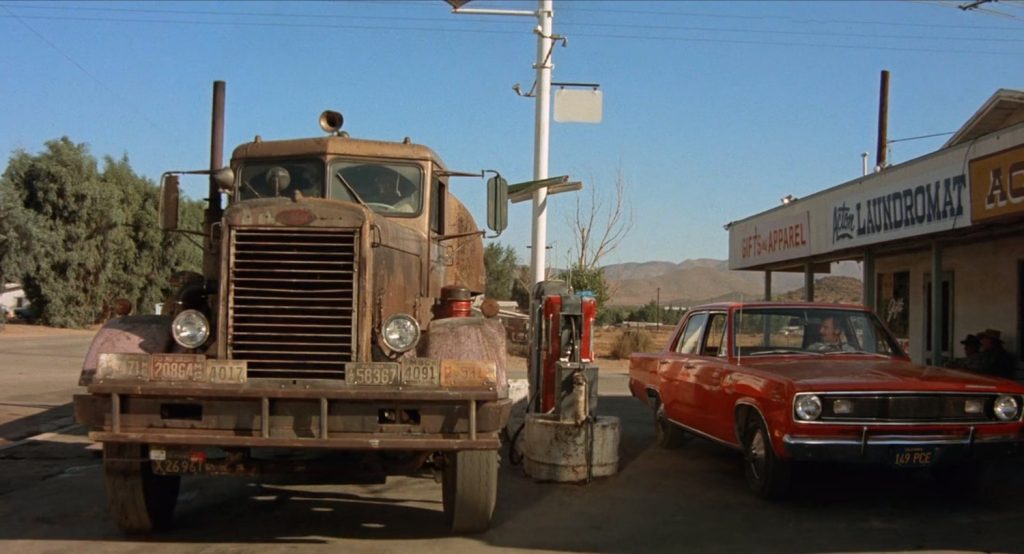 Always Trust Your Gas Station Attendant
Always Trust Your Gas Station Attendant
Thomas Parker is a native Southern Californian and a lifelong science fiction, fantasy, and mystery fan. When not corrupting the next generation as a fourth grade teacher, he collects Roger Corman movies, Silver Age comic books, Ace doubles, and despairing looks from his wife. His last article for us was A Metaphysical Nightmare: Brian Moore’s Cold Heaven
7 Author Shoutouts | Authors We Love To Recommend
Here are seven Author Shoutouts for this week. Fine one of your favorite authors or…
The post 7 Author Shoutouts | Authors We Love To Recommend appeared first on LitStack.
Vexing the Grumpy Orc - Book Review by Voodoo Bride
 Vexing the Grumpy Orc (Silvermist Mates #3)by Chloe Graves
Vexing the Grumpy Orc (Silvermist Mates #3)by Chloe GravesWhat is it about:Territory lines weren't made to keep out fate.
HannahSaving my petrified familiar requires rare mountain mushrooms and sacred ritual grounds. Unfortunately, both sit squarely in one extremely hot and incredibly grumpy orc's territory. One defiant step across my ritual circle unleashes magic far more dangerous than any gorgon's curse—the kind that burns between bodies instead of bones.
But with Digby's stone form growing colder by the day, failure isn't an option—even if success means trusting the orc who ruins my spells with a single touch.
GalanWitches destroy everything they touch. My father's exile taught me that lesson well.
But this witch stalks my woods with a sharp tongue and even sharper magic. Her fierce loyalty and forbidden rituals set my blood burning and instincts snarling for more.
My chief shatters my solitude and commands me to keep her safe while my father orders me to march her off a cliff. Blood should win over heart, but she makes me question every truth I thought I knew.
Fate branded Hannah into my soul, and I won't rest until I claim her as mine.
What did Voodoo Bride think of it:I have a soft spot for grumpy men (well, others think they're grumpy, but they're not grumpy to me) so I decided to give this book a try.
Maybe I should have started with the first book, where this world gets set up. Because I was convinced this was Other World Fantasy Romance. It even read that way at first. Then suddenly there was a mention of American states, and then jeans, and other modern stuff.
Turns out this is what I would call an Urban Fantasy Romance.
That really threw me. I mean: Orcs in Fantasy or SciFi/Cyberpunk settings are one thing, but it seems I never thought of Orcs belonging in Urban Fantasy. The Orc village feeling very Other World Fantasy didn't help in getting used to the otherwise modern setting.
But that weird disconnect aside:I really enjoyed the romance.
I didn't like Hannah at first. She really is annoying and a total jerk for someone caught trespassing, and I was just as grumpy about her as Galan (who I did like right away).But things get hot and steamy fast between them, and she does get less annoying luckily enough. From then on I was totally invested in the two of them figuring things out and getting in some more loving.
All in all a very enjoyable Romance and I might try other books in this series.
Why should you read it:Hot Grumpy Orc!
A Sword & Sorcery Series I Really Love: Flashing Swords!, edited by Lin Carter
Flashing Swords! #2, 4, & 5 (Science Fiction Book Club, September 1973, May 1977,
and December 1981). Covers by Frank Frazetta, Gary Viskupic, and Ron Miller
It’s time to take a look at another Sword & Sorcery anthology series I really love: Flashing Swords, edited by Lin Carter. It is second in my affections only to the Swords Against Darkness 5-book series edited by Andy Offutt that I wrote about here last year.
Flashing Swords! came out of the group known as SAGA, which stood for the Swordsmen and Sorcerers Guild of America, a group in the 1970s and 80s that included almost all the elite S&S writers of the age.
They were an informal group but Lin Carter was the closest thing they had to a leader. Under his editorship, five outstanding anthologies of works from their members appeared, all new stories, not reprints. As shown in the pictures below, I have the volumes from Dell paperbacks, as they were originally released, and three from Nelson Doubleday in hardback (above), as they were offered by the Science Fiction Book Club.
[Click the images for flash versions.]
Flashing Swords #1 (Dell, July 1973). Cover by Frank Frazetta
Flashing Swords #1 (1973) has 4 longish stories by Leiber, Vance, Anderson and Carter. All were strong and this is probably the strongest of all the volumes. Anderson’s story, “The Merman’s Children,” is the best, and Carter’s story, “The Higher Heresies of Oolimar,” is one of his strongest ever.
The cover was an awesome Frazetta, one of my favorites of his paintings behind his Kane and Death Dealer art. The volume was dedicated appropriately to Robert E. Howard.
Flashing Swords! #2 (Dell, April 1974). Cover by Frank Frazetta
Flashing Swords #2 (1973) is dedicated to Henry Kuttner. It had four more long stories, by L. Sprague de Camp (with whom Carter had a long history), Michael Moorcock, Andre Norton, and John Jakes.
Moorcock’s story, “The Jade Man’s Eyes,” was of Elric, and Jakes’ story, “Ghouls Garden,” was about his character Brak. I’ll talk more about both authors eventually here but both these tales were very good and I particularly loved the Brak story, which made me seek out more of the tales.
Flashing Swords #1 & 2, UK editions (Mayflower, 1974 and February 1975). Covers by Bruce Pennington
The hardback has a great Frazetta cover, but have a look, too, at the paperback cover from Mayflower books (above), which I found online. I like that one even better than the Frazetta I think, although that sounds almost blasphemous.
Bruce Pennington did it and I wish I had that edition.
Flashing Swords! #3: Wizards and Warriors (Dell, August 1976). Cover by Don Maitz
Flashing Swords #3 (1976) bore a subtitle, Warriors and Wizards. It was dedicated to Clifford Ball. This was the weakest of the five volumes, although still good. It had stories by de Camp, Fritz Leiber, Andre Norton, Carter, and Avram Davidson.
The Leiber story, “The Frost Montreme” — Fafhrd and the Gray Mouser — was the strongest. Don Maitz is the cover artist. It’s good, but a bit less barbaric than I like. Very Renaissance looking.
Flashing Swords! #4: Barbarians and Black Magicians (Dell, November 1977). Cover by Don Maitz
Flashing Swords #4 (1977) is subtitled Barbarians and Black Magicians. This one is dedicated to Norvell Page, who I’ll be covering here. Stories by Vance, Anderson, Jakes (Brak; Storm in a Bottle), Katherine Kurtz, and Moorcock (Elric; “the Lands Beyond the World”).
This one is as strong as the original volume, and I like the hardback cover by Gary Viskupik. It also has some cool interior illos by Rick Bryant. The paperback cover, which I found online, is by Don Maitz again and looks like an Elric representation.
Flashing Swords! #5: Demons and Daggers (Dell, December 1981). Cover by Rich Corben
Flashing Swords #5 (1981) is subtitled Demons and Daggers. No dedication. It has a cool wraparound cover by Ron Miller, although it’s my least favorite of the series. The Dell paperback has a cover by Richard Corben.
Includes stories by Roger Zelazny (a Dilvish tale), C. J. Cherryh, Diane Duane, Tanith Lee, and the first humorous story in the series by Craig Shaw Gardner. I didn’t think it was as strong as #1, #2, or #4, but somewhat better than #3.
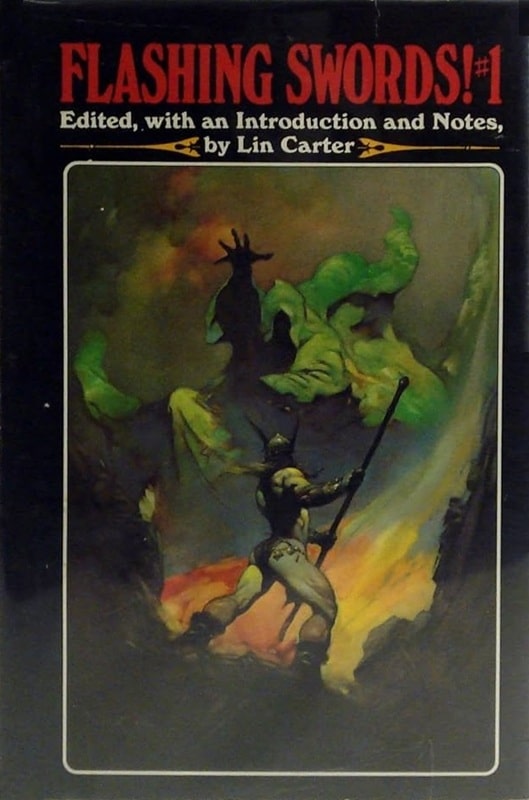
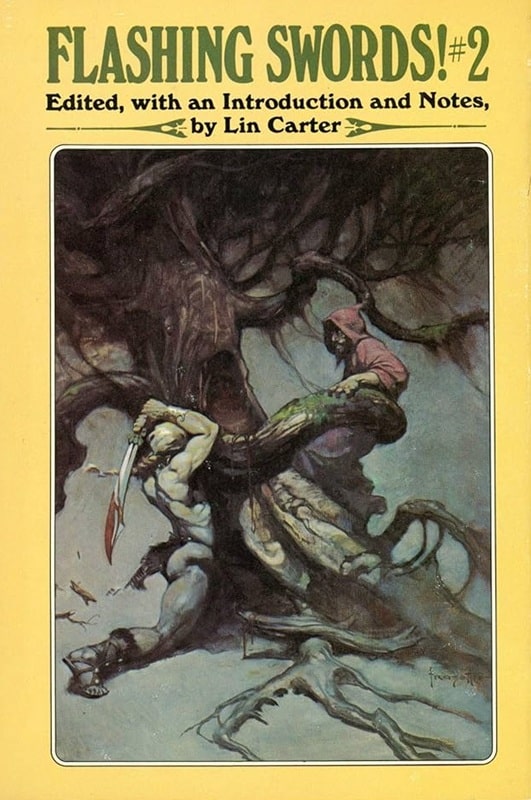
Flashing Swords! #1 & 2 (Science Fiction Book Club, April and September 1973). Covers by Frank Frazetta
In 2020, Robert Price, Lin Carter’s literary executor, revived the series as Lin Carter’s Flashing Swords. There have been two volumes published, although the first one created a minor storm of controversy over the introduction by Price. I have not yet bought or read these two volumes.
I’ve also included above the hardcover covers for volumes 1 and 2 (above), both by Frazetta.
Charles Gramlich administers The Swords & Planet League group on Facebook, where this post first appeared. His last article for Black Gate was Sword & Sorcery on a Post-Apocalyptic Earth: Blackmark by Gil Kane.
Women in SF&F Month: J. D. Evans
Today’s Women in SF&F Month guest is J. D. Evans! She is the author of the epic fantasy romance series Mages of the Wheel, which currently contains five novels. Reign & Ruin, her debut novel and the Self-Published Fantasy Blog-Off Award–winning first book in her series, features a Sultana and prince who “must find a way to save their people from annihilation and balance the sacred Wheel.” I’m thrilled she’s here today with her essay “In Defense of the Kind […]
The post Women in SF&F Month: J. D. Evans first appeared on Fantasy Cafe.Teaser Tuesdays - Under the Surface

Selena peers into the hole, then jerks back. "Whoa, that goes really far down."
Julien waves us closer. "We must hurry, yes?"
(page 33, Under the Surface by Diana Urban)
---------
Teaser Tuesdays is a weekly bookish meme, previously hosted by MizB of Should Be Reading. Anyone can play along! Just do the following: - Grab your current read - Open to a random page - Share two (2) “teaser” sentences from somewhere on that page BE CAREFUL NOT TO INCLUDE SPOILERS! (make sure that what you share doesn’t give too much away! You don’t want to ruin the book for others!) - Share the title & author, too, so that other TT participants can add the book to their TBR Lists if they like your teasers!
Book review: Where The Axe is Buried by Ray Nayler

Book links: Amazon, Goodreads
ABOUT THE AUTHOR: Ray Nayler is the author of the Locus Award winning novel The Mountain in the Sea. For nearly half his life, Ray has lived and worked outside the United States in the Foreign Service, the Peace Corps, and in international development. He was Environment, Science, Technology, and Health Officer at the U.S. consulate in Ho Chi Minh City. He most recently served as international advisor to the Office of National Marine Sanctuaries at the National Oceanic and Atmospheric Administration, and as a diplomatic fellow and visiting scholar at the George Washington University's Institute for International Science and Technology Policy. He lives in Washington, DC.
Publisher: MCD (April 1, 2025) Length: 336 pages Formats: audiobook, ebook, paperback
Nayler’s previous works impressed me. They are quieter, more cerebral, and heavier than most sci-fi I see nowadays. Where the Axe is Buried is no exception - it’s ambitious, sometimes dense, often cerebral, and very much not here to hold your hand.
Zoya, a revolutionary leader, is living on borrowed time. Lilia, a scientist, is quietly lighting a match under a corrupt regime. Both feel their world is falling apart in slow motion. Resistance movements aged into institutions, rebellion calcified into bureaucracy, and some people became symbols at the expense of their humanity. Surveillance became part of daily life, social credit systems force social obedience. Huh. Actually, it doesn’t feel like a far-off dystopia.
The story here is complex and drops readers into a tangled web of politics, ideologies, and slippery truths. There were definitely moments where I had to pause, re-read, or just pause. It’s dense, and not every reader is going to vibe with that. Especially if you come to sci-fi for character-driven stories -because while the characters here are interesting, they’re not always warm or even likable.
There’s a lot of high-concept tech in here (consciousness transfer, AI-run governments, memory networks), which is cool and disturbing. What happens when history is controlled by algorithms? Who decides what the future looks like? Can power ever truly be neutral? And so on, and so on, with no simple answers.
Overall, I felt Where The Axe is Buried is more interested in systems than individuals, in ideology over intimacy. It’s intellectually rich, occasionally chilly, but worth the effort.
Book Review: Another Fine Mess by Lindy Ryan
I received a review copy from the publisher. This does not affect the contents of my review and all opinions are my own.
 Another Fine Mess by Lindy Ryan
Another Fine Mess by Lindy Ryan
Mogsy’s Rating: 4 of 5 stars
Genre: Horror
Series: Book 2 of Bless Your Heart
Publisher: Minotaur Books (April 15, 2025)
Length: 368 pages
Author Information: Website | Twitter
I think once you get a feel for what the Bless Your Heart series is all about, it’s easy to fall in love with it. From the cover and synopsis vibes, you’d be right to guess this isn’t the kind of horror that keeps you up at night, but neither is it your typical fluffy, quirky cozy mystery. In fact, it hits that sweet spot somewhere in between—a little bit dark, a little bit weird, with just enough humor to keep things fun and the unsettling moments from taking over. Another Fine Mess is the second book in the series, and it continues to build on this balance.
Picking up not long after the events of Bless Your Heart, this sequel drops us back into the small southeastern Texas town where the women of the Evans family have spent generations keeping the peace in a very unexpected way. For you see, the dead have a way of not staying dead here, but running the local funeral home means the Evanses are the first line of defense whenever the deceased gets restless. Following the devastating losses from the end of the first book though, only Lenore Evans and her teenage granddaughter Luna are left to hold down the fort. Now they are desperate for some answers, and the new sheriff in town is way out of his depth and not much help. Only family secrets, half-forgotten lore, and the remnants of old legends can help them figure out what’s happening to their town.
Lately, there’s been a string of unexplained occurrences—locals vanishing without a trace, mysterious deaths, and an uptick in missing pets. While most folks in town are quick to blame it on a rabid animal on the loose, Lenore knows better. She recognizes the signs of a strigoi attack all too well. These are troubled spirits fueled with relentless rage, and they won’t stop until they’re put down for good. In the meantime though, the Evans women must keep the townsfolk calm, hiring some extra help at the funeral home to disguise the gory nature of the deaths. However, authorities have also hired a wolf expert from the university to investigate, and she’s skeptical that the killings have anything to do with an animal. As the body count rises, causing the media to descend upon the town, Lenore and Luna must race against time to find a solution before whatever is out there comes for them next.
In this worthy follow-up, the author keeps the plot brisk and engaging, layering scenes of bloody horror with easy humor and endearing character relationships. It’d definitely be helpful if you’ve read the first book, as many of these dynamics have been carried forward from Bless Your Heart. The story unfolds through multiple points of view, mostly from key players like Lenore and Luna, but there are some supporting POVs thrown in throughout for extra flavor. In addition, there is even a major character whose presence in this sequel surprised me, but it was also very welcome.
Of course, what I enjoyed most about this book was the way it embraced both the horror ingredients as well as the light-hearted elements found in any story about complex family ties. Underneath all the blood splatter of disembowelments and dismembered limbs is a solid core based around a family’s shared grief, resilience, and love. Not even death can break the bonds between the Evans women, and the relationships between them show that what they mean to each other transcends generations and even traditional mortal boundaries. In the horror department, what we get here leans more towards gore and the macabre, but a lot of it is done in such an over-the-top way that it doesn’t end up all that scary. In fact, the campiness was actually kind of refreshing, and Ryan’s version of the vampire and werewolf mythos feels both familiar and inventive when combined with the charming properties of Southern Gothic tropes.
Overall, Another Fine Mess is a fast and witty sequel, and together with its predecessor makes for an entertaining and unique entry in the urban fantasy horror genre. With the second book, considered me sold on the quirky family drama and gallows humor of this series. I would love to see the Evans women return for more stories in this darkly charming Southern setting, and if that happens, I’ll definitely be back.
![]()
![]()
Comment on A Beginner’s Guide to Drucraft #34: Measurements of Strength by Kevin
In reply to Benedict.
Ah that makes sense. Obvious we haven’t seen the Ashfords aside from Calhoun use sigls due to lack of screen time but from what little we have seen, it doesn’t seem like they are that skilled with Drucraft. If they married into House Meusel and only one of them is a prodigy that would indicate they are better at selling sigls than using them.
Magnus seems to be a Drucraft cripple which he passed on to Tobias and Isadora, and Lucella isn’t even a shaper which I think would mean she is only a tyro. That leaves Helen who I believe leans more on the Drucraft business side of things than actually ability and Stephen got his skills for his Father.
So would Stephen in pure Drucraft be behind Calhoun in for lack of a better term rankings for the Ashfords? Or would Charles and his mother have an edge or be equal to him?
Free Fiction Monday: Death And Taxes
People often misquote Benjamin Franklin on the only certainties in life—death and taxes. But Patrick wonders about the truth in that.
Once, young and foundering, he embarked on a quest to challenge life’s inevitabilities.
Now, older and jaded, he comes face to face with his past, forcing him to question everything he believes.
“Death And Taxes“ is available for one week on this site. The ebook is also available on all retail stores, as well as here.
Death And Taxes By Kristine Kathryn Rusch
Sixteen years and a half continent away from the great American Midwest, Patrick saw Keri. She was running out of the market across the street from his favorite coastal café, a bottle of wine in her hand.
At first he thought it couldn’t be her. Her long brown hair caught the sun, reflecting it in golden highlights. She was slender, and the blue sundress she wore hung off her as if she hadn’t grown into it yet.
Perpetually twenty. That was what he thought as he sipped his mocha and returned to the Wall Street Journal. Keri would always be twenty and coltish, not quite grown into her body.
He smiled at himself, at his romantic nature. Proof, perhaps, that he had loved her because he saw her in every gangly twenty-year-old with the promise of great beauty.
Then a car horn made him look up. The woman was standing in the middle of the street, staring at him, cars stopped all around her. The bottle of wine had shattered at her feet.
His gaze met hers.
She hadn’t changed.
And there was a look of abject horror on her face.
***
Sixteen years and half a continent away, he’d been twenty-five, callous and certain of his own future. The son of a prominent lawyer, he’d become a lawyer too—not with the thought of practicing law, but with the thought of creating it. He studied politics like it was a religion, and decided that he had to be in the seat of government. So, with his newly minted certificate from the bar, he headed downstate thinking the capitol would welcome him.
Instead, he learned that any state capitol had its share of locally grown lawyers. With his pedigree, the partners at the large local firms said, he could get a job anywhere. The following question—why here?—had an underlying meaning: what’s wrong with you? How come you haven’t gone to your father’s firm?
He couldn’t very well say he had come because he thought getting into politics would be easier here. It wasn’t. He didn’t know anyone, and the art of politics was the managing of connections.
Eventually, he got a job as a junior staff lawyer at the Fair Housing Coalition, a job he saw as beneath him both financially and politically. Yes, yes, he believed everyone should have a home and everyone should be treated fairly, but most of the people he saw were too dumb to realize that a lease agreement was a legal document and that their behavior had put them in trouble with their landlord and the local laws.
He could have, he later supposed, joined the interoffice coalition that was working to change some of the more egregious landlord-tenant laws, but his heart wasn’t in it. Instead, he gravitated to the local university, spending his time in the student union, drinking with people who reminded him of his friends back home, talking philosophy and planning to change the world, one little decision at a time.
That was how he learned about the Professors Simmons and their interdisciplinary study—financed by any number of government agencies and private corporations—and extended, theoretically, over decades.
The study only made it through the first five months of its existence.
It caused two deaths, and derailed any hopes he had of politics—at least out front. Only fast-talking and the excellent attorneys of his father’s firm had saved Patrick from being disbarred.
By then, he didn’t care. He’d already met and lost Keri.
And had his belief in everything shattered.
***
He grabbed his mocha as he headed out of the café. Interesting, he would later think, that he’d left his PDA and his newspaper, but took his beverage.
It was a clear sign that he wasn’t thinking, just reacting, running through the closely set tables to the double-doors, pushing them open and hurrying into the street.
A VW Bug swerved past him, and the driver shouted an obscenity. A sedan, following, leaned on its horn.
But he didn’t move. He stared at the broken bottle, the red wine running like blood down the empty sidewalk.
Keri was gone—as if she had never been.
***
The Professors Simmons were not related. There were four of them, all in different disciplines. They met at a large university faculty gathering where everyone had been asked to clump alphabetically. Their common last names, their common ages, and their uncommon interests held them together a lot longer than the meeting had.
Professor Abigail Simmons taught philosophy. She had two seminars in which she tortured undergraduates, forcing them to challenge the realities in the world around them. She also taught three graduate seminars to the same twenty grad students, the courageous few who thought majoring in philosophy was a good idea, no matter how badly it ruined them for the job market. She had grown frightened for her own job, discovering that publishing occasional articles in philosophical and religious journals wasn’t enough to impress her dean. Apparently, she had to do some sort of breakthrough research to justify her salary. But, she would argue, breakthrough research and philosophy were by definition incompatible, something her dean believed she—of all people—could overcome.
Professor Roderick Simmons taught political science. He was the rightwing guru of the poli-sci department, the man that local media always called to give a reliable—and seemingly balanced—view of local elections. Roderick Simmons specialized in political systems and, in addition to his well-received books, he spent a lot of time away from campus, consulting with various groups, many of them tied to the Republican Party. He was tenured and secure, which made him perfect for this joint project.
Professor Marilyn Simmons was a biologist. Her teaching work involved occasional lectures to overcrowded 101 classes (with the day-to-day work done by teaching assistants) and supervising the research of sleep-deprived graduate students. Her seat at the university had funding from outside grants; she was a star professor who felt her own area of expertise had grown a bit stale. She was looking for a new challenge, one that would improve her prestige even more, and this, she felt, was it.
Professor Nash Simmons was the youngest and the most professionally insecure of the group. Even his specialty reflected his insecurities: His professorial bio said that he focused on Cognitive Analysis and Behavioral Theories—a lot of words, he liked to joke, that meant he had no idea what he was doing. He did whatever it was that he did from the Behavioral Science Department, where he taught upper-level psychology classes and graduate seminars in the brain. He supervised almost no graduate students and his thesis, a trailblazing work on cognitive theory that had been published to great acclaim, was now several years old. He had to produce something new, and in the way of all who were acclaimed when they were too young, he felt that something new had to be trailblazing as well.
Patrick had no idea how the multidisciplinary study went from cocktail party talk to grant-writing to grant-winning, but by the time he had encountered Simmons-N, as Nash Simmons had been designated by those involved in the work, the study was looking for willing bodies. That Patrick wasn’t a student and had an understanding of the body politic made him an unusual choice.
That he was willing to step into the real world in the name of science made him even more unusual.
But it was his willingness to apply experimental techniques to that real world that made him the most desirable candidate the Professors Simmons had found.
***
Patrick walked into the market. It smelled of garlic and fish overlaid with the faint scent of roses from a display near the door. The place was dark compared to the street and cramped, which instantly made him uncomfortable. He preferred the large chain grocery store at the end of town, where the lights were bright and the products were displayed according to dictates of some corporate official in another state.
As his eyes adjusted, he saw six different aisles heading toward the seafood department along the back wall. The seventh aisle, which started behind the cashier, carried wines, beer, and hard liquor. Cigarettes were stacked high, where no one could get them without help from the staff.
He waited in line, noting that everyone ahead of him had fresh produce and canned products with the words “healthy” or “organic” or “natural” on the label. He shuddered, hating the pretension, remembering when he used to do the same thing just to fit in with his university friends.
When he made it to the front of the line, he reached into the back pocket of his jeans and pulled out his badge. Most people in this small town knew their sheriff, but he was cautious for the handful that didn’t.
“The woman who just left,” he said. “The one with the wine. Can I see the copy you made of her license?”
The clerk flushed and for a moment, he thought the gambit wouldn’t work. Keri still looked twenty; she should have been carded. Oregon law stated that anyone who looked thirty-five or younger had to show identification to buy liquor.
But the clerk nodded and called for a manager, who took Patrick to the back office where he could look at the fuzzy identification that had been scanned into the computer system.
Kerissa Simon, the ID said, the last name dangerously close to Simmons—so close that it made his head hurt.
“Any idea where she’s staying?” he asked, knowing the store didn’t need a record of that, but often took it to avoid problems later on.
He got the name of a roadside motel, cheap but comfortable, and somehow it didn’t surprise him, just like her appearance in his refuge hadn’t surprised him.
Although it should have.
***
The meeting room was an old lecture hall in one of the campus’s earliest buildings. The building was now used primarily for offices, but this room had clearly been too big to give to just any professor.
Radiators ran along the walls beneath the single-paned windows, and despite the constant heat blowing into the room, there was still a draft. Patrick sat near the door in a wooden desk chair that was at least eighty years older than he was. Some of the names carved into the desk’s surface had been there so long that their edges had worn smooth.
He traced them, feeling out of place among the students, knowing he looked out of place in the suit his father had purchased for him before his first moot court appearance. Patrick had taken off the tie and stuffed it into his briefcase, but the fact that he had a briefcase instead of a backpack and a suit coat instead of a sweater already showed that he wasn’t One of Them.
A few stared, and a couple kept glancing at him like they expected him to get up front and talk about the various studies.
He’d had some preliminary meetings with the Professors Simmons and the assisting graduate students; he assumed these other participants had as well. Now, though, they were getting together for their first official meeting. They would have four such meetings before splitting into various subsets, four meetings in which the Professors Simmons would lay out the purpose of the studies as best they could, without tainting the results.
The professors stood in the hallway, heads bent, conferring, while a graduate student with a clipboard checked off the names of each attendee. Finally, a young woman, snowflakes melting on her hair and collar, stopped near the graduate student, gesturing an apology as she gave her name. Then she slipped inside the room, and took the only remaining chair, right next to Patrick.
“The snowstorm they predicted came, huh?” he asked.
She leaned away from him and finger-combed the moisture from her brown hair. Then she peeled off her coat, meticulously hanging it on the back of her seat.
“The roads are a mess,” she said. “I had to park six blocks away.”
He was in one of the private lots, courtesy of the Fair Housing Council. He hadn’t really noticed the snow until he started climbing hill. Then he worried about the swiftness of the storm, knowing that the sidewalks could get buried during the few short hours of the meeting.
“I’m Patrick,” he said as she sat down across from him.
“Keri.” She stuck her mohair scarf inside her coat sleeve, then smiled at him. “You need the money too?”
No, he wanted to say but didn’t, I just need the company. He knew this study paid the highest of any conducted on campus, and he thought he knew why. The interdisciplinary approach allowed for even more grant money than usual, and the professors decided to use that money to pay the subjects extra, so that they’d stick around for the duration rather than leave when the semester ended.
“Money’s always nice,” he said, which was as much of a dodge as he wanted to give her. He wasn’t sure why he felt this odd need for honesty. She was a bit thin for his tastes—all elbows and knees and sharp angles. She was also at least five years younger than he was, an undergraduate when he’d been out of school for a year now.
She smiled at him, then pulled an older laptop from her backpack. The laptop barely fit on the desk. Several other participants had laptops or AlphaSmarts or PDAs with keyboards.
He hadn’t even thought of taking notes, which suddenly showed him how far he had come from the student mentality. He leaned to the right, opened his briefcase, and pulled out both a legal pad and his BlackBerry, not sure which would work best in this situation.
Then the door opened one more time, and the Professors Simmons came in. Their appearance was as varied as their disciplines. Simmons-A was short and dumpy, her curly hair a mixture of gray and grayer. Simmons-R wore a suit as expensive as Patrick’s. His black hair had a precision cut, and his hands looked manicured. Simmons-M was slender and wore her long red hair in some sort of upswept do that looked like it took time and three other people to create. Simmons-N had the prerequisite professorial ponytail and wispy goatee. His glasses fell to the edge of his nose, making him seem even more absent-minded than he probably was.
Patrick’s stomach turned. Studies, waivers, payment by the hour, altering his behavior because he had agreed to do so, not because he wanted to do so.
Was he that lonely? Was he that lost?
He glanced around the room, at the stressed, pimply faces around him, and realized he probably was.
***
The motel had been built in the late 1950s, when this coastal community had been known as the Disneyland of the Pacific Northwest. Once there’d been a theme park (although in those days, they’d called it something else) on the outskirts of town. Only a few remnants remained—a red-and-white store downtown that made its own candy; a go-cart park across from a restaurant once known as (and still referred to by locals as) the Pixie Kitchen; and a five-story resort hotel built in the Cape Cod-style where presidents had stayed but which had become, in the intervening years, an old-folks home.
This motel, unoriginally called the Beach-Goer, still advertised that it had television and clean, comfortable rooms. It stood on a bluff overlooking the ocean, prime real estate that the elderly owners refused to sell to all sorts of development firms.
The main entrance was off a narrow drive that barely fit today’s SUVs; he had no idea how the large automobiles of forty years ago had negotiated the same road.
He drove a truck/van combination with an engine modified for high speeds. The county owned the vehicle, and if he ever lost a local election, he would have to give the thing back. Sometimes he thought he might miss it—in the back was all sorts of life-saving equipment mixed with weaponry—but mostly he saw it as a burden of his job, one of many he hadn’t understood when he learned that his checkered past mattered less to the people here than it probably should have.
He parked just outside the entrance, making sure that the official decals were facing away from the street, so as not to interfere with any walk-in business. Then he went inside.
The desk clerk was a local gal who played bingo at the casino every Wednesday night. He didn’t know her name, but they’d seen each other around. It was hard to miss the other locals in a town of 7,000.
She smiled at him with recognition. He didn’t have to flash his badge. He just asked for Keri Simons’ room, and the clerk gave him a room key.
He weighed it in his hand as he walked along the concrete sidewalk. The key was a kind of power: if she wasn’t there, he could wait inside her room, surprise her, let her know who was really in charge.
That he even had the thought surprised and appalled him at the same time. He had never thought of control in connection to Keri before.
But the study itself, the reason they met, was all about control.
And hubris.
And the belief that somehow, humankind had the power to alter its own destiny.
***
“For thousands of years, mankind has felt it has a destiny.” Simmons-A stood in front of the long wooden desk beneath the chalkboard. She had taken a piece of chalk before beginning her welcoming remarks, almost as if the chalk provided a kind of comfort. All during her talk, she kept the piece in her palm, alternately rolling it and clenching her fingers around it.
Patrick found himself watching the chalk instead of her face, partly because she reminded him of every professor he’d ever disliked, and he wasn’t exactly sure why.
“Not just a species destiny,” Simmons-A was saying, “but individual destinies as well. We can turn to almost any early document based on the oral tradition and find evidence. Genesis tells us that God created Man in His own image, and just that sentence alone implies that God had a purpose for Man, a purpose that Woman screwed up, of course.”
The group laughed, but it sounded dutiful. Patrick made himself smile, even though he hadn’t felt like it, but Keri crossed her arms.
“Mythology gives us story after story of people confronting their destinies, from the Christ story to the Greek story of Oedipus.”
Patrick shifted in his chair. He didn’t need the history lesson if that was what it could be called. He just wanted to get on with the actual business of the study, whatever it would be.
“Fighting destiny is one of the greatest themes mankind has.” Simmons-A tossed the chalk into the air and caught it. “Look at Joseph Campbell’s The Hero’s Journey. Look at our own fiction from popular tales of Harry Potter to Star Wars. Even romance fiction flirts with destiny. Romance hints that every person on earth has a soulmate—someone they’re destined to be with. If we take the time to find that person—or if we recognize that person (apparently some of us do not)—then, the theory goes, we shall live happily ever after.”
Keri bit her lower lip. Patrick didn’t know when he started looking at her instead of Simmons-A.
“From time immemorial,” Simmons-A said, “mankind has tried to fight its destiny, whatever that destiny might be. Few are with that proverbial silver spoon in their mouths. Even fewer accept that spoon with grace. If you do not believe me, look at the remaining royal families of the world. Such tales we hear of debauchery and rebellion.”
A few people smiled, but most stirred, just like Patrick had.
“What has this to do with us?” Simmons-A asked. “Simple.”
She then gave a capsule summary of the faculty meeting, the conversation the Professors Simmons had in lieu of listening to faculty debate.
“The only thing that the four of us could agree on that evening,” she said with a smile that transformed her face from sour and discouraged to slightly pretty, “was that Benjamin Franklin was right: in this world, nothing is certain but death and taxes.”
“And being born,” someone said from the front row.
She looked at him in surprise. He had broken her rhythm. Simmons-M, the biologist, came forward at that moment, rescuing her colleague.
“We can’t change that,” she said. “We’ve all been born and we’ve survived. So once we’re here, all we can be certain of are death and taxes.”
She had a powerful voice with a touch of music to it. She also had a great deal of charisma, and Patrick found himself wishing that she had been in charge of the opening speech instead of Simmons-A.
But Simmons-M knew her place, at least in this beginning. She made a little bow to Simmons-A and returned to the cluster of Simmonses near the blackboard.
“Precisely,” Simmons-A said, attempting to recover. “Death and taxes. We argued about that flip remark for weeks. And somehow, we went from a philosophical discussion of certainties and uncertainties in this world to what we’re calling a multidisciplinary study. According to our grants, we’re attempting to see if humankind can change its known destiny. But between us—”
And she grinned again, looking over her shoulder at her colleagues like a schoolgirl. Only Simmons-N smiled back.
“—we decided to have a race. We have four things to prove: That we do indeed have destinies. That we can change them. That human-made systems—in this case, taxes—can be changed. That biological systems—in this case, death—can be changed.”
Then she stepped back with a little nod, and Simmons-R came forward. Patrick slouched. He’d never realized until this moment how much Simmons-R reminded him of his father.
“You’d think,” Simmons-R boomed and half the room sat up as if they’d dozed and been rudely awakened, “that human systems would be the easiest to change. But I have my doubts. In a cursory search of governmental systems throughout human history, I cannot readily find an example of a society without taxation. Once again, let me turn to the Bible. The Egyptians…”
And as he discussed the levies that the Egyptians placed on their subjects, the taxes that built the Roman roads, the demands the medieval Japanese put on families, he made an eloquent, if familiar, point.
Patrick assumed the point probably wasn’t as familiar to the undergraduates—few people in the room besides the Professors Simmons were as overeducated as he was. He glanced at Keri. This time her gaze caught his, and she smiled.
He felt twelve again, and actually had to resist the urge to write a note on his legal pad and pass it to her. So far, she hadn’t typed anything into her laptop, and he’d only written down “Death and Taxes” as if it were the topic sentence of an essay exam.
In fact, he never wrote anything else down that night. The remainder of the evening was a jumble of lecture—Simmons-M discussing the necessity of death, not just on an individual scale, but on a worldwide one (species death; death of ecosystems; the eventual death of the planet itself), and the arrogance of humankind to think it can alter death, even on a small scale; and Simmons-N referring to behavioral studies that suggest humankind’s perceptions of the world have led humans to misunderstand it—and an increasingly shared but silent intimacy with Keri, who seemed to find the whole thing as pretentious and amusing as Patrick did.
“One of the things that we’re going to examine,” Simmons-N said in his nasal voice, “is whether time actually exists or is just a matter of perception. Because if it is a matter of perception, then nothing around us is real—or everything is real, from the primordial soup that the Earth was once to this moment to the heat death of the universe, all happening at once.”
Simmons-A smiled through that entire speech, as if she agreed. Indeed, it seemed to Patrick that she would have been better off saying it than the cognitive and behavioral scientist.
Patrick said that later to Keri, at an all-night coffee shop just off the main drag. They’d ducked inside on their way back to their cars—or, more accurately, on the way back to hers; he’d passed his blocks before, but hadn’t told her, enjoying her company enough to hazard the ice pellets and heavy wind that the storm had become.
They found a booth in a warm corner away from the door, where they spent the next few hours laughing about the pretension, about the silly race between the disciplines (which implied, Patrick said, that they would all succeed in areas of study where no one had succeeded before), about the ironic coincidence that led the Professors Simmons to each other in the first place.
Sometime during the evening, Keri postulated that the winner of the entire thing might end up being the philosopher, who had somehow gotten a group of diverse people together to re-examine their beliefs in a way that seemed as irrational as the most screwball religious cult.
Patrick had laughed at that remark. And it was his own laughter that he thought of most often when he thought of Keri. Not of those nights at his apartment, not of the horrible last day. Just the laughter.
And the professors’ fight against a complacency that he didn’t then understand.
He understood it now, even felt it on days when the sunlight hit the ocean, and his small town was bathed in a clear, almost unworldly light. He would tell himself, as he looked at that beauty, that he had done the best with what he had.
But there was always an itchy restlessness underneath—a what-if chorus that continued to sing: What if he had gone to his father’s law firm first? What if he hadn’t been interested in politics? What if he had never met Keri?
What if, what if, what if.
He played the scenarios in his mind as if he were screenwriter finishing a script for a time-travel movie.
What if…
He didn’t know. He would never know.
He only knew that if the ancient Greeks had written his life story, the what-ifs didn’t matter. Destiny was destiny. The Greeks always showed that no matter what changes mere mortals tried to make, destiny would win out.
Somehow, the Greek version seemed to tell him, he would meet Keri anyway, she would die, and everyone would be sued. Careers would end. Lives would be ruined. Simmons-N would commit suicide all over again.
And Patrick would end up here, carrying a little sheriff’s badge in an unimportant town on the Oregon Coast, living alone, and wishing none of it had ever happened.
***
He paused before knocking on the door to her room. Only now, with a key in hand, and the memories fresh, did he realize how silly he was being.
Keri Andreeson was dead. He’d seen her corpse. They all had. They had clustered around it in the biology lab, her mouth slack, her tongue protruding ever so slightly, her eyes bulging, and her skin an unnatural clay color, and they had stared.
No one had said a word. He wasn’t sure, even then, if anyone completely understood how much her death would change everything.
He wasn’t sure he understood even now.
He swallowed against a dry throat. Was standing here a sign of a growing insanity? The fact that he was willing to believe that some girl—coincidentally named Keri (spelling the same)—whose driver’s license claimed she was twenty-two and from Illinois (Keri had been from North Dakota, complete with a melodic Fargo accent)—the fact that he was willing to believe she was the same person as the girl whose body he’d seen, the fact that he was willing to believe she was alive, and looked the same, and was terrified of him—showed just how far he had fallen intellectually, how little he believed in realities any more, how much he hoped for miracles.
Which made him no better than the people who had placed their faith into those studies.
Or put their faith in anything, for that matter. For what was faith, but a belief in the impossible? An irrational belief in something unbelievable.
He clutched the key in his fist, tempted to open the door and scare the girl, whoever she was. Who would she report her fear to? The sheriff?
He felt a bitter smile cross his lips. Then he turned away.
Better to leave the past in the past. Better to leave destiny or fate or the lack thereof to the philosophers and the professors and the dreamers.
Better to return to the realities of traffic accidents and one murder a year and a lonely house on a cliff-face overlooking the ocean, a house with a television as large as his bookshelves, a place where he went when he couldn’t stand reality any more.
He had just stepped into the parking lot when he heard a lock turn and a door open behind him.
And before he had time to think—or maybe he lied about that: maybe he did have time to think and he chose this—he turned, and stared Keri Simons—Keri Andreeson—in the face.
***
They’d become lovers even though the Professors Simmons had cautioned against fraternizing. That alone might have skewed the study—or one of the studies—had any of them been completed. But the thing had barely gotten off the ground when it all ended. Patrick had just received his working orders from Simmons-R the week before, working orders that included an overall personal plan which extended for five years.
The breadth of the study surprised him, even then.
Patrick was to ally himself with a local political group—any political group would do, so long as it worked on the grassroots level—and slowly ease them to a new vision: that taxation was a scourge, that government needed fiscal responsibility, and that required budget-tightening, reduced spending, and no new taxes. Over time, the no-new-taxes pledge would become a no-tax pledge, depending on how high up the political ladder he could climb, how much power he could attain, and how many followers he could convert to his—actually, Simmons-R’s—way of thinking.
Patrick, in his naïveté, had thought it possible. Much as he believed politics was the art of compromise, he also knew it lived in the realm of argument. A charismatic man with the right argument could change the playing field—make compromise happen on the one-yard line instead of the fifty-yard line, and yet convince everyone that they had attained a middle ground.
He’d actually see in happen, years later. The political center moved farther and farther right as he moved farther and farther west. When he finally stopped long enough to look at what America had become while he’d tried to outrun his past, he found himself wondering if some of Simmons-R’s other subjects hadn’t continued with the experiment, working their way up the political ranks until they reached the national level, influencing everyone from senators to the president himself.
Then Patrick would shake that feeling off—surely he would recognize someone from the bad old days, right?—and he would remind himself that taxes still existed, that the United States went through cycles of heavy taxation followed by cycles of light taxation, but never, in its two-hundred-plus year history had the United States ever gone without taxing someone for something.
He found that vaguely reassuring, just like he found the obituary columns reassuring. People continued dying. Humankind kept fulfilling their destinies, one grave at a time.
***
She was twenty. That was the first thought which reached his brain as he stared at her, framed in that cheap wooden doorway, sunlight peaking over the building’s eaves and the shush-shush of the ocean beyond.
In no way could this woman be in her mid-thirties, stretched by time and loss and years on the run.
She put both hands on the doorframe as if bracing herself or blocking his entrance or simply holding herself up. She was as thin as ever, coltish, all angles and lines, a girl who had not yet fulfilled her physical potential, whatever that might be.
“Can I help you?” she asked in a voice he wasn’t sure he remembered.
He flushed. She had seen him pause in front of her door, maybe even seen his hand raise slightly, his fist clench the key. She’d certainly seen his indecision, and, ultimately, his retreat.
“You bought a bottle of wine today,” he said, finally choosing an official approach.
“Is that illegal?” She tilted her head slightly as if she were interested in the answer. The movement was familiar. Keri used to do it when she was flirting.
His heart literally contracted. He’d only felt that squeezed sensation once before, when he saw her on the cot in the lab, her arm dangling to one side, the IV still taped into it but listing, as if it had died with her.
It took a physical effort to bring himself to the present.
“No,” he said. “Buying wine isn’t illegal. Neither is dropping it. But you could have picked up the glass.”
“Is this town so poor that it sends someone out to get its littering fees?” Then he heard it: the Scandinavian music behind the Fargo accent. The accent existed in the up-and-down cadence of the words as much as the long-vowel pronunciation.
She had cured the long vowels, but not the melodious intent behind them.
“I’m not here to collect any fees,” he said, “even though I am the county sheriff.”
“I would have thought that a man who read the Wall Street Journal had higher ambitions.”
She had seen him then, drinking his mocha and reading his paper, taking his afternoon break and pretending he was someone else.
If she had seen him, then that look of horror had been real.
And if that look of horror had been real, did that mean she had recognized him?
And if she had recognized him, did that mean she was Keri Andreeson masquerading as Keri Simons?
“I did have higher ambitions once.” He felt odd discussing them with a woman he thought dead in the parking lot of a cheap motel. “I left the café to talk with you, but you’d already vanished.”
“Vanished.” She smiled. That smile belonged to a woman, not a girl. It was learned. It held a wisp of sadness as well as a touch of irony. And through it all, her eyes hadn’t changed. “Leaving broken glass behind.”
He should have brought a bottle of wine. He saw that now. It would have eased the moment, given it some symmetry. But he wasn’t that kind of thinker.
Or maybe he was—a man who knew better than to tempt fate.
“We got it cleaned up,” he said as if he had something to do with it.
She nodded. She didn’t ask who he was. She just studied him in the odd light filtering over the building.
Finally, he had to become the supplicant, even though he didn’t want to. “Is there somewhere we can talk?”
She shrugged a single shoulder, her hands remaining in place. “This is fine.”
It wasn’t fine. Even though the motel was sheltered by the trees, there were other doors, other windows, other rooms where people might be. They might listen. The desk clerk might be listening, and later she’d mention the odd conversation to her friend in the bingo hall, telling them how strange the sheriff seemed on that sun-dappled afternoon.
“It’s not very private,” he said.
“I don’t see other cars,” she said, as if she’d expected his objection.
He sighed, and walked back toward her. She locked her arms, and he had the sense she had done that instead of flinching. Why would she be afraid of him? If they hadn’t met, then it was something about her. If they had, then she was afraid he’d recognize her. He’d know that she hadn’t died, that people had gone to jail for no reason.
But she had died. He had touched her waxy skin. He had cried for her.
He’d loved her.
He hadn’t thought of any way to approach this conversation, and now he felt tongue-tied. Did he ask her if she’d known a Keri Andreeson? Wouldn’t someone who had changed her name deny it? Or should he ask if she had gone to the university? Or simply ask what brought her here, to the literal end of the earth?
Finally, he settled on: “Have we met before?”
Her mouth opened as if she planned to answer him, then closed as if she thought better of it. “You mean besides now.”
He nodded, not willing to play any more word games.
“Outside the market, you looked at me like I frightened you,” he said, then wished he hadn’t.
“That’s why you ran outside?” she asked, her voice rising. “That’s why you tracked me down?”
“I was already thinking you looked familiar,” he said, letting the implication hang that yes, he had sought her out because he wanted to find out what terrified her.
“A lot of people say that.” She gave another one-shoulder shrug. “I have one of those faces.”
But not one of those bodies. Not in combination. But he didn’t dare say anything like that lest she think it improper. Not that she would have any recourse here, in this small town, where he normally was the recourse.
“Still,” he said. “Something you saw frightened you.”
She studied him for a moment. “I don’t think we have met,” she said, answering the earlier question. “You seem like a man a woman would remember.”
He felt his breath catch. The other Keri had described him that way. When he had asked her why she had gone with him that first night, she had said she would have regretted not going. He had asked why. She had smiled. Because, she said, you’re the kind of man a woman would remember.
The echo bothered him. Everything about this meeting bothered him.
“You came to see me because you thought I was frightened,” she said.
“I came because I wanted to find out if you’re the woman I remembered,” he said, noting the echo in his own language.
“Am I?” she asked.
He swallowed, his throat still dry. The movement was painful.
“No,” he said after a moment. “I don’t think you are.”
***
She died testing the equipment. That was the official story. She was lying on the cot, taking a bit of fluid in the IV, seeing if the heart monitors worked, when somehow, she went into cardiac arrest.
Experiments on human beings, whether in government funded labs or university trials, were forbidden in the United States. Tests could be performed—trial runs of pharmaceuticals, for example, or psychological batteries—all with waivers, properly signed, and the risks carefully laid out.
For the death study, administered by Simmons-M with help from Simmons-N, the risks hadn’t been properly laid out. The implication—never proven—was that the participants would be brought to the brink of death and brought back. At the brink, they would attempt to prolong life, through perception changes or medications or some other procedure.
But unlike the tax part of the study, none of this was written down. It didn’t dare be.
Although the grant for this part of the study had been explicit enough to bring the two Professors Simmons to criminal court, and drag the university into a system-wide scandal. Simmons-R got brought in when it became clear he had lobbied the institution that issued the grant money, but Simmons-A remained untouched.
Simmons-A had only her grant proposal to delineate her involvement, and her participants were going to examine the philosophical underpinnings of both death and taxes, with a touch of psychological attribution.
She claimed betrayal by the other Simmonses, and that was how she parlayed her involvement into bestselling nonfiction books, while the other professors spent years in court.
Arguing over Keri’s death. Accident? Possibly. The administering nurse was really a nursing grad student, not through her pharmacological classes. Perhaps she had put a sedative into the IV in error—or grabbed the wrong IV in error. But there was too much verbal testimony otherwise.
Too many indicators that the Simmons Three, as the press had started to call them, had become arrogant enough to believe they could conquer death. Simmons-N’s suicide, shortly after he had been let out of jail on bond, led to jokes in the local media—that the Simmonses were again trying to prove they could conquer the state, if not death itself.
There was no sympathy.
Not even from Patrick.
He had stayed for the trials, even though his father told him not to. He had stayed, even though he (and the other tax participants) were classified as non-involved.
No one discovered his relationship with Keri, and he didn’t confess it.
He watched as Simmons-M’s brilliant career dissolved, as Simmons-R went from being an authority to being a blowhard, as the two of them sat across from a jury and waited for judgment.
What’s your destiny now? The reporters would ask as the two of them and their lawyers hurried out of the courtroom every night.
Their destiny, it turned out, was a plea bargain. Negligent Homicide for Simmons-M. Conspiracy for Simmons-R. A few years time in a minimum-security prison, followed by community service.
None of this brought Keri back.
Simmons-A didn’t even attend the trials. When Patrick went to see her, after the trial, she grew rude and frightened when he said he wanted to discuss the study. But he didn’t leave.
Did you really want to change destinies? He asked.
I told them it couldn’t be done, she said. It’s the one thing philosophers agree on. That in life, some things cannot be changed.
He almost fell for it. Then he realized that she was wrong. The Hindu system was based on knowledge—reincarnation as learning, improving, changing, growing—and, by implication, changing destiny. Not accepting it as the Christians taught. Not bowing to its inevitability, like the Greeks.
But he didn’t challenge her. He no longer had the energy.
He couldn’t change his destiny. But he could change his life.
So he headed west.
***
Where, he thought as he got into his truck, he had become a man who drowned in taxes. They created his job, provided his ride, paid his salary. In an odd, and completely unplanned way, taxes were his destiny.
Just as death would be someday.
He started to pull away, and then he stopped.
None of that explained Keri, her look of fright, her resemblance to the other Keri, the one he thought he had loved.
He couldn’t leave. Not yet.
He rested his head on the steering wheel and sighed. Then he got out of the truck one final time.
He rehearsed what he was going to say as he crossed the parking lot.
Do you believe in destiny? He’d ask. Do you believe in soulmates? In love that doesn’t die?
He didn’t know what he’d do if she said yes.
But he was willing to find out.
___________________________________________
“Death And Taxes“ is available for one week on this site. The ebook is also available on all retail stores, as well as here.
Death and Taxes
Copyright © 2017 by Kristine Kathryn Rusch
First published in Fate Fantastic, edited by Martin H. Greenberg and Daniel M. Hoyt, Daw Books, 2007
Published by WMG Publishing
Cover and Layout copyright © 2017 by WMG Publishing
Cover design by WMG Publishing
Cover art copyright © Jun He/Dreamstime
This book is licensed for your personal enjoyment only. All rights reserved. This is a work of fiction. All characters and events portrayed in this book are fictional, and any resemblance to real people or incidents is purely coincidental. This book, or parts thereof, may not be reproduced in any form without permission.



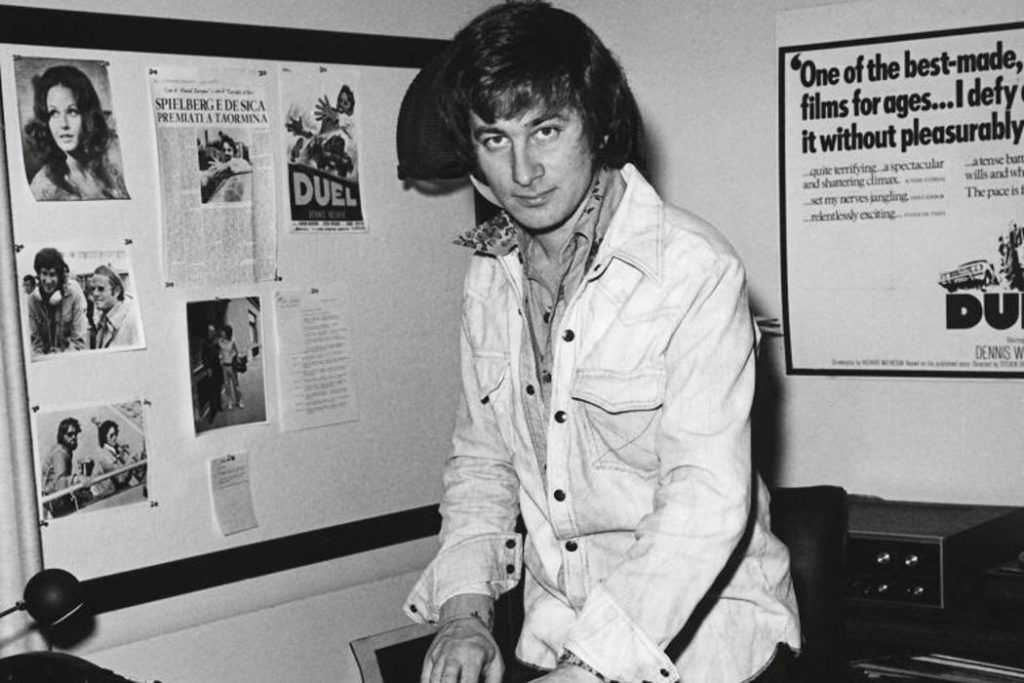


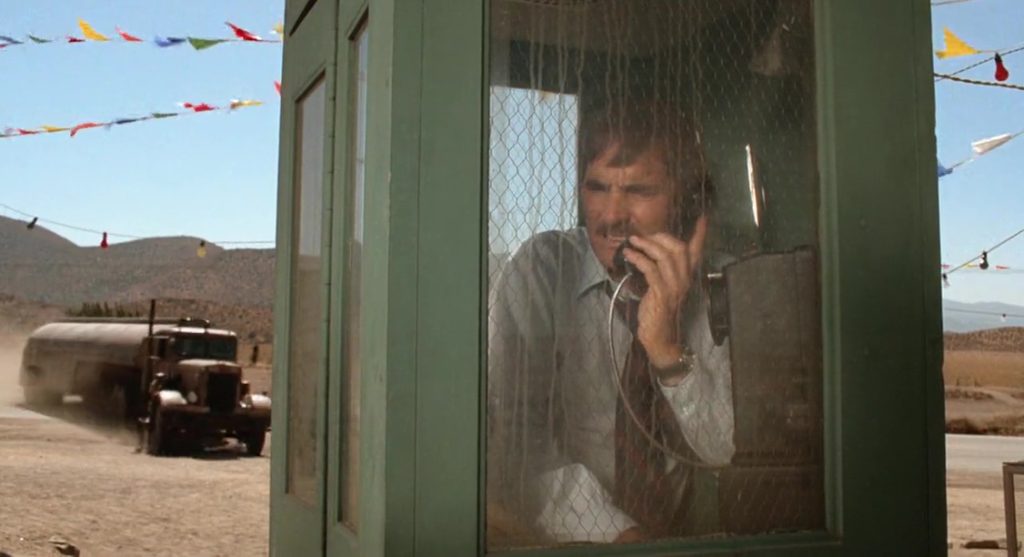


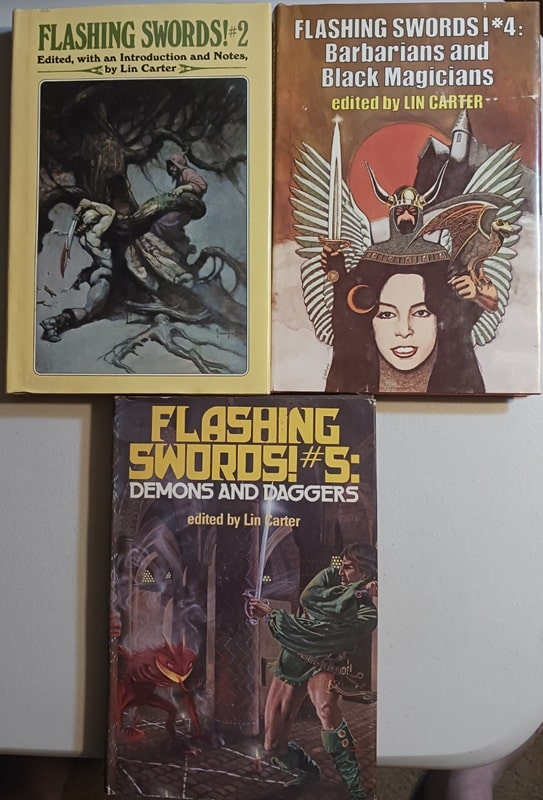
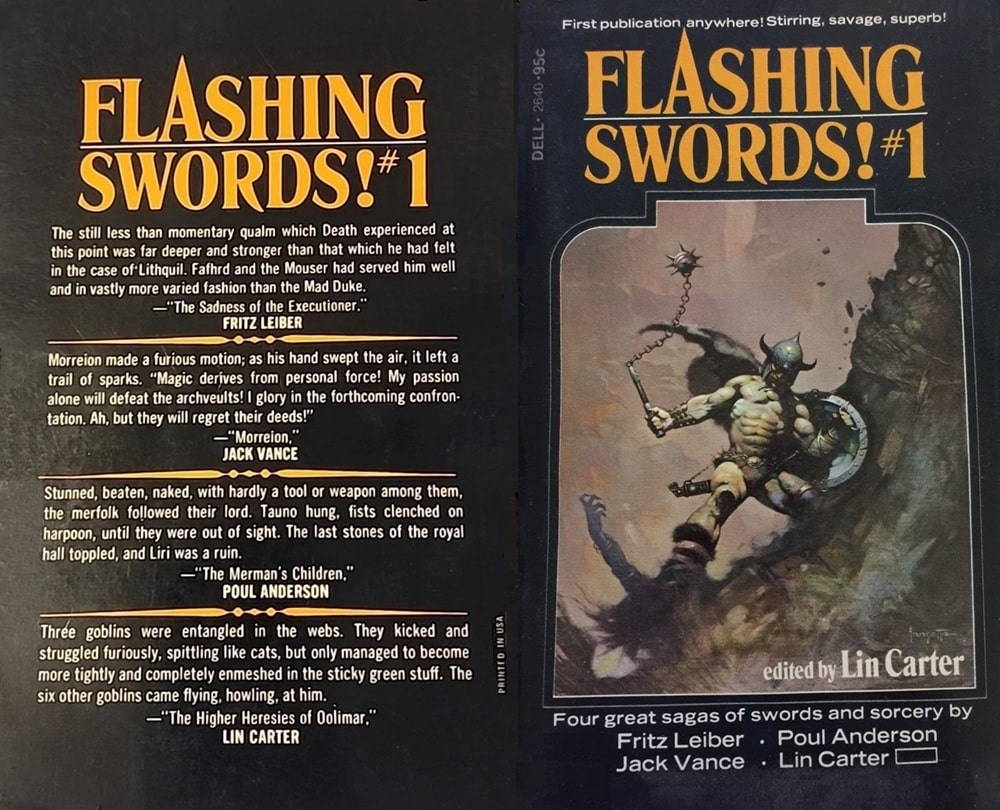
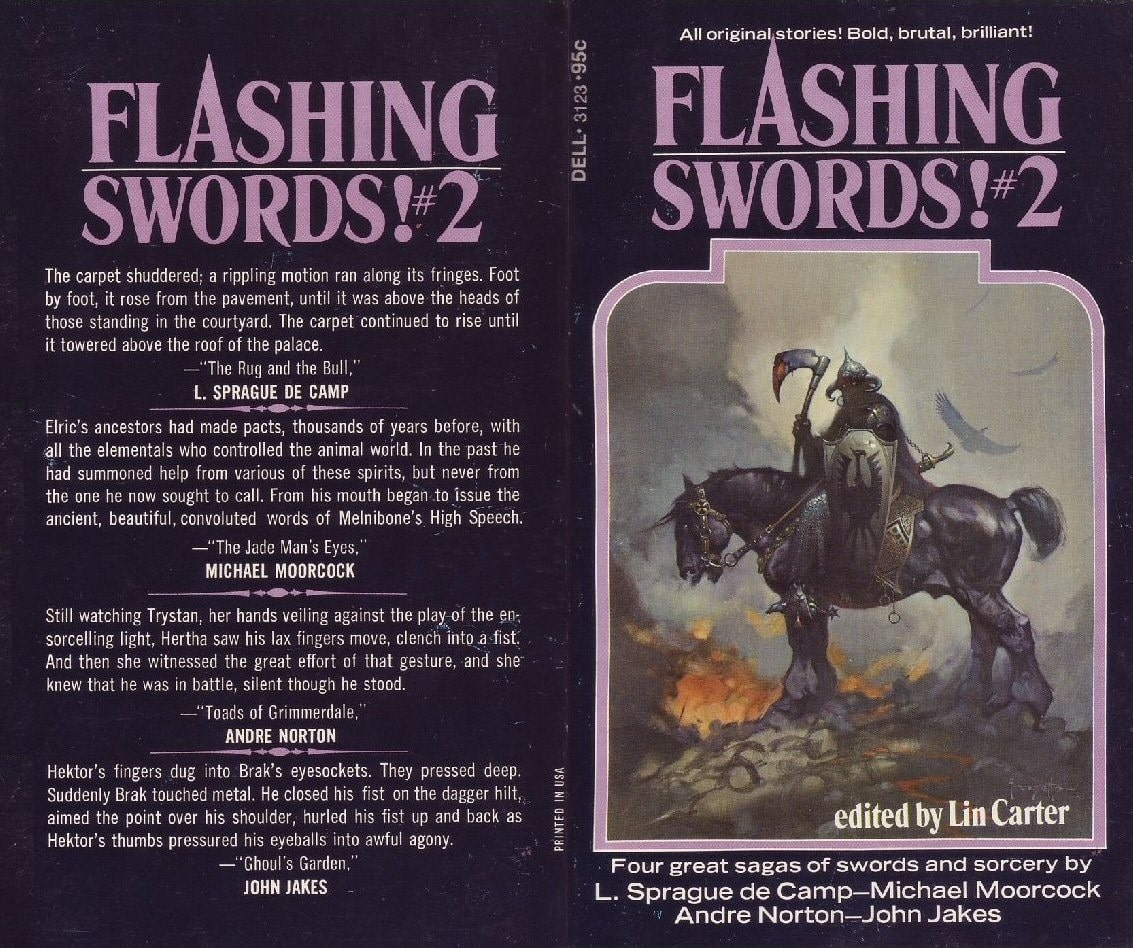
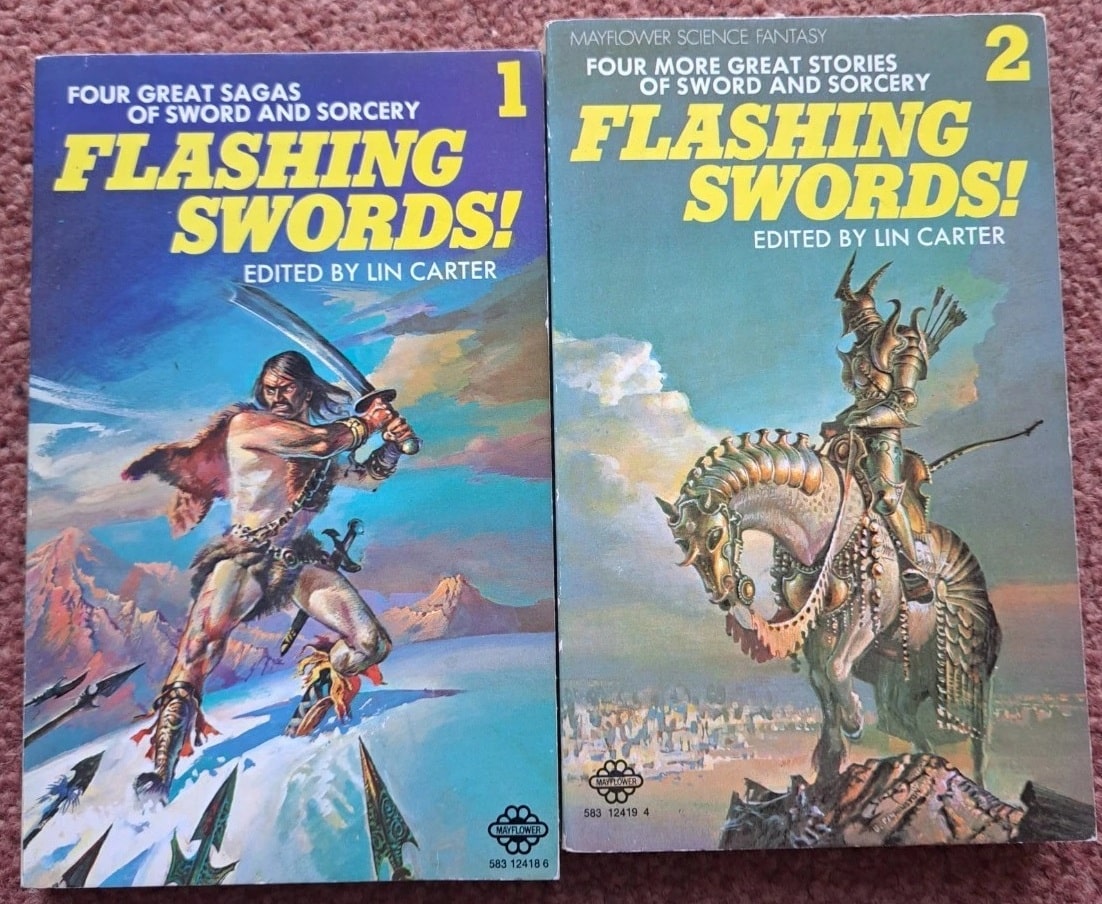
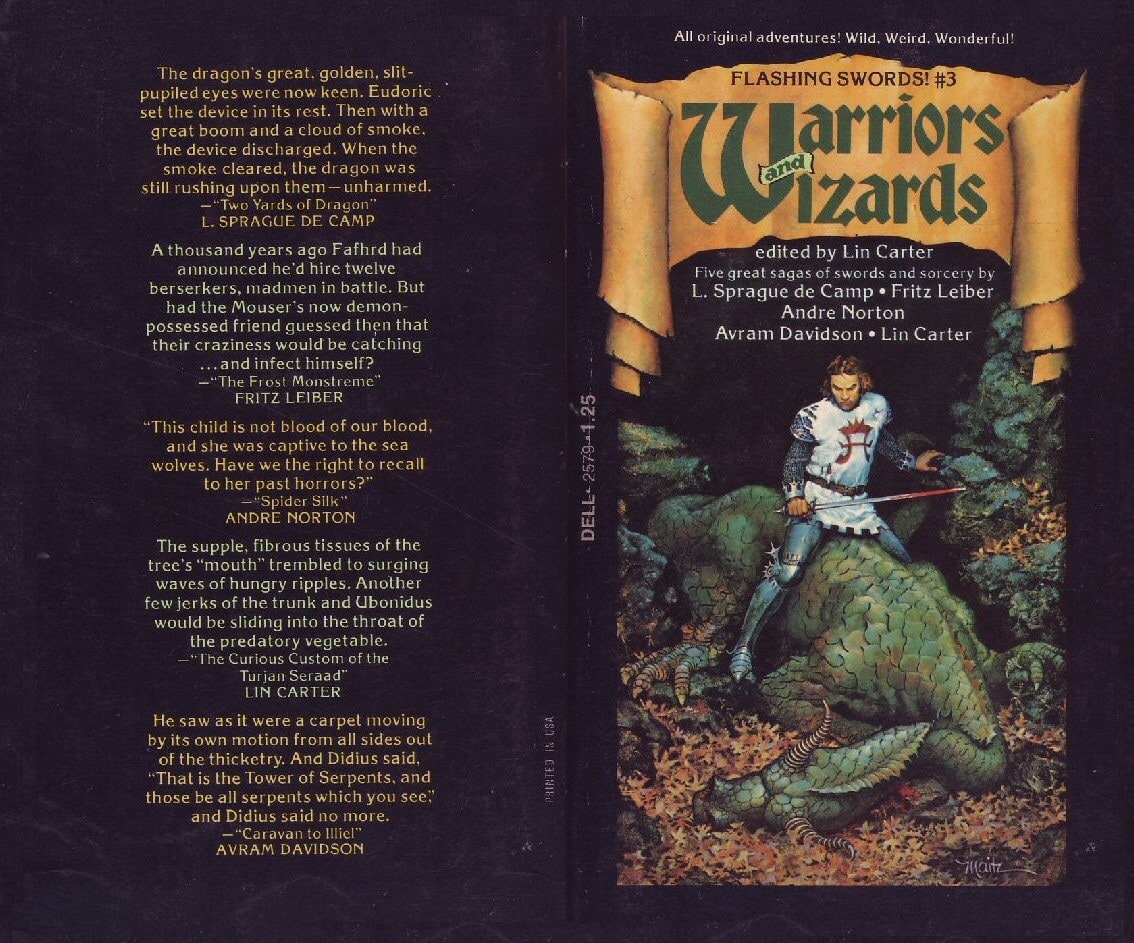
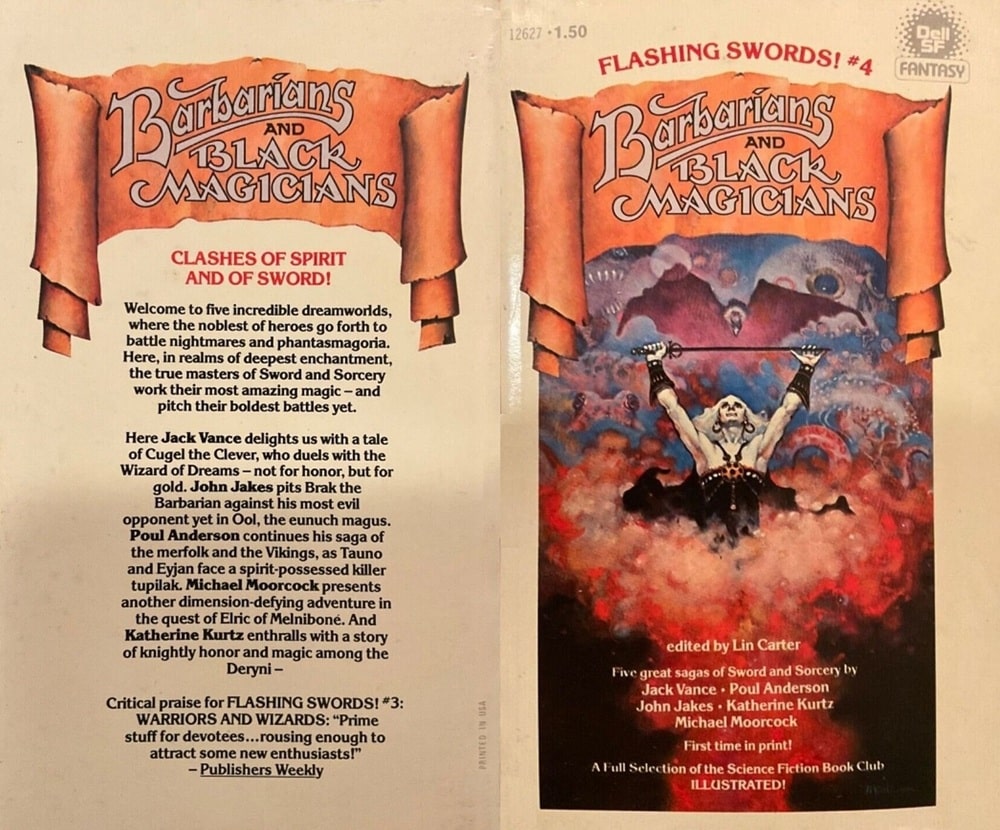
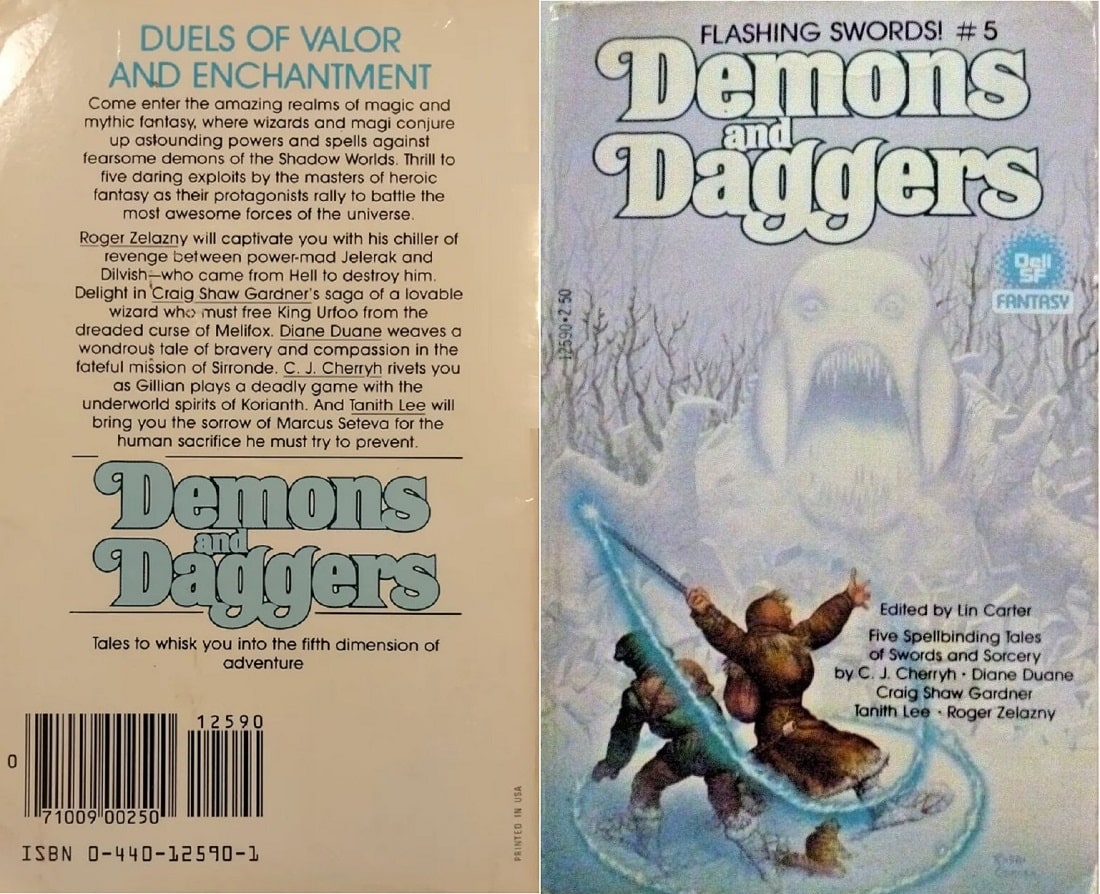
Recent comments